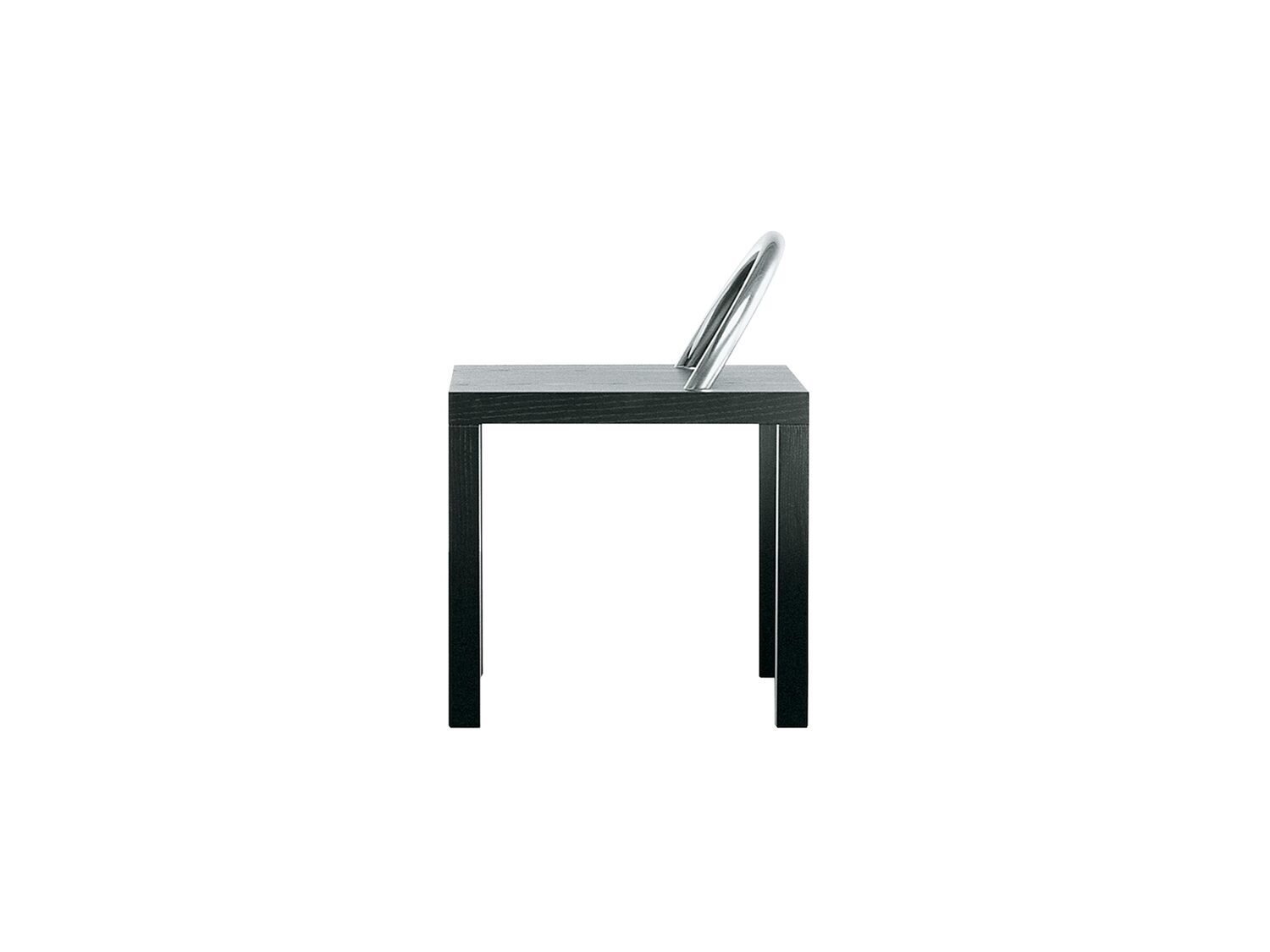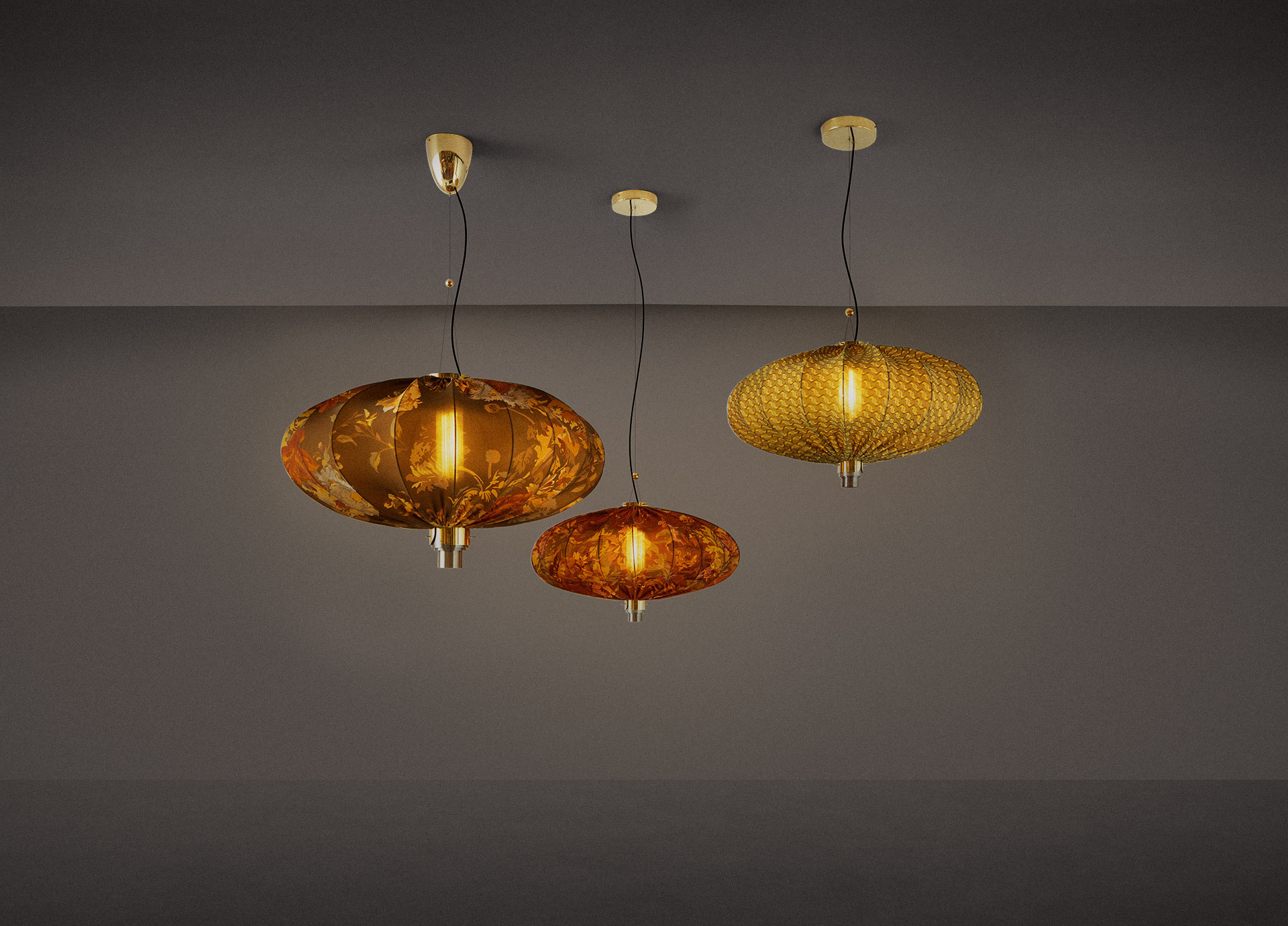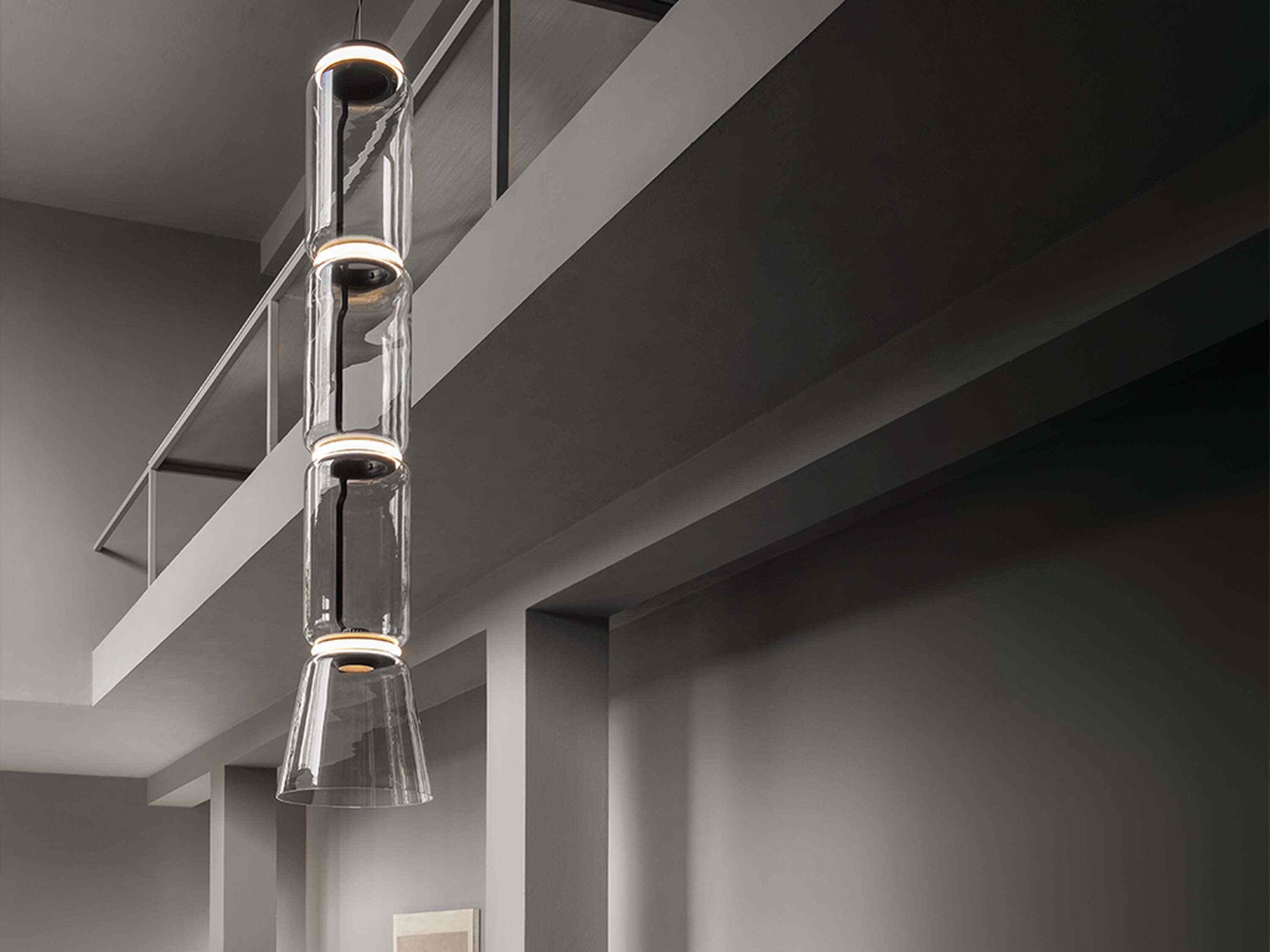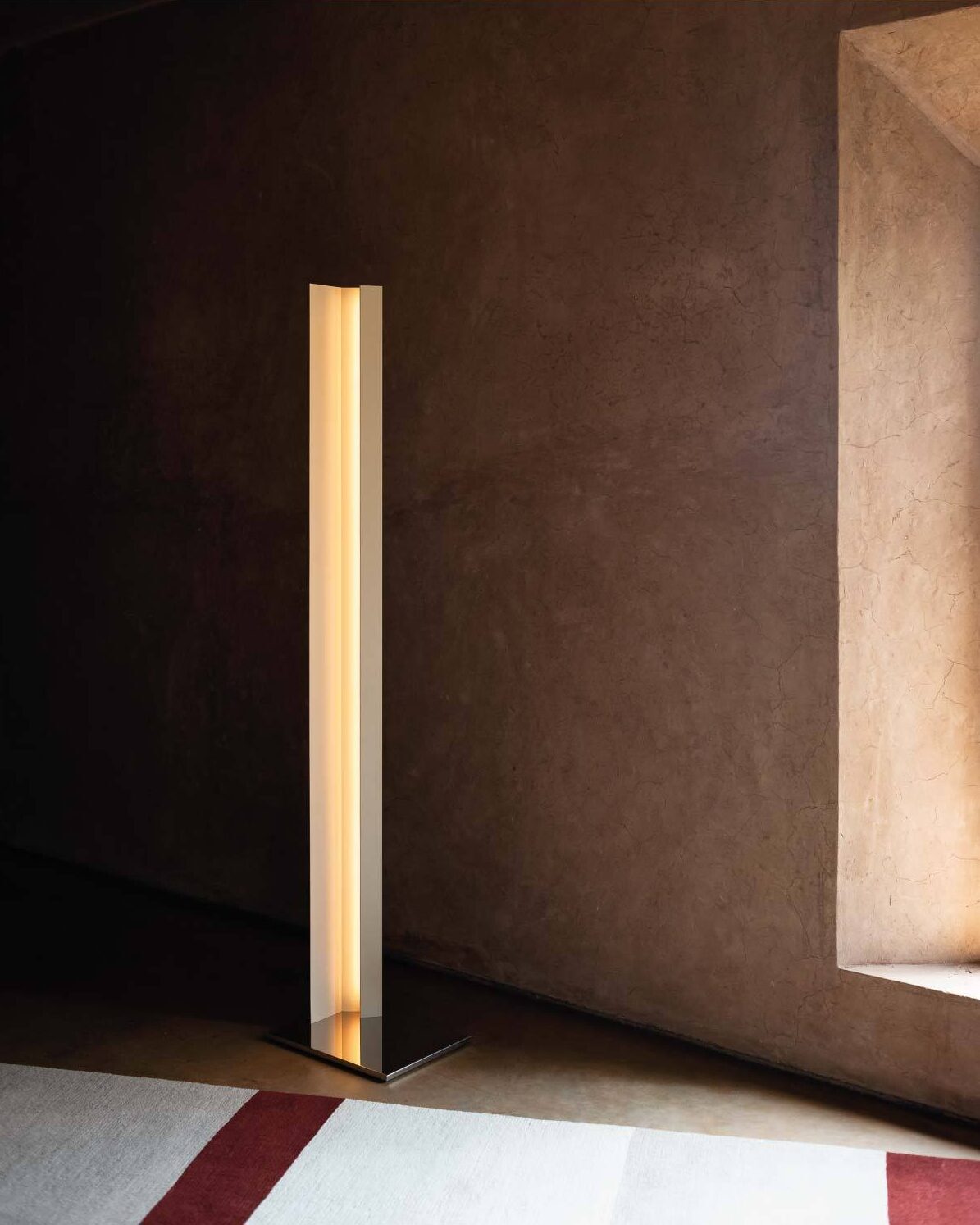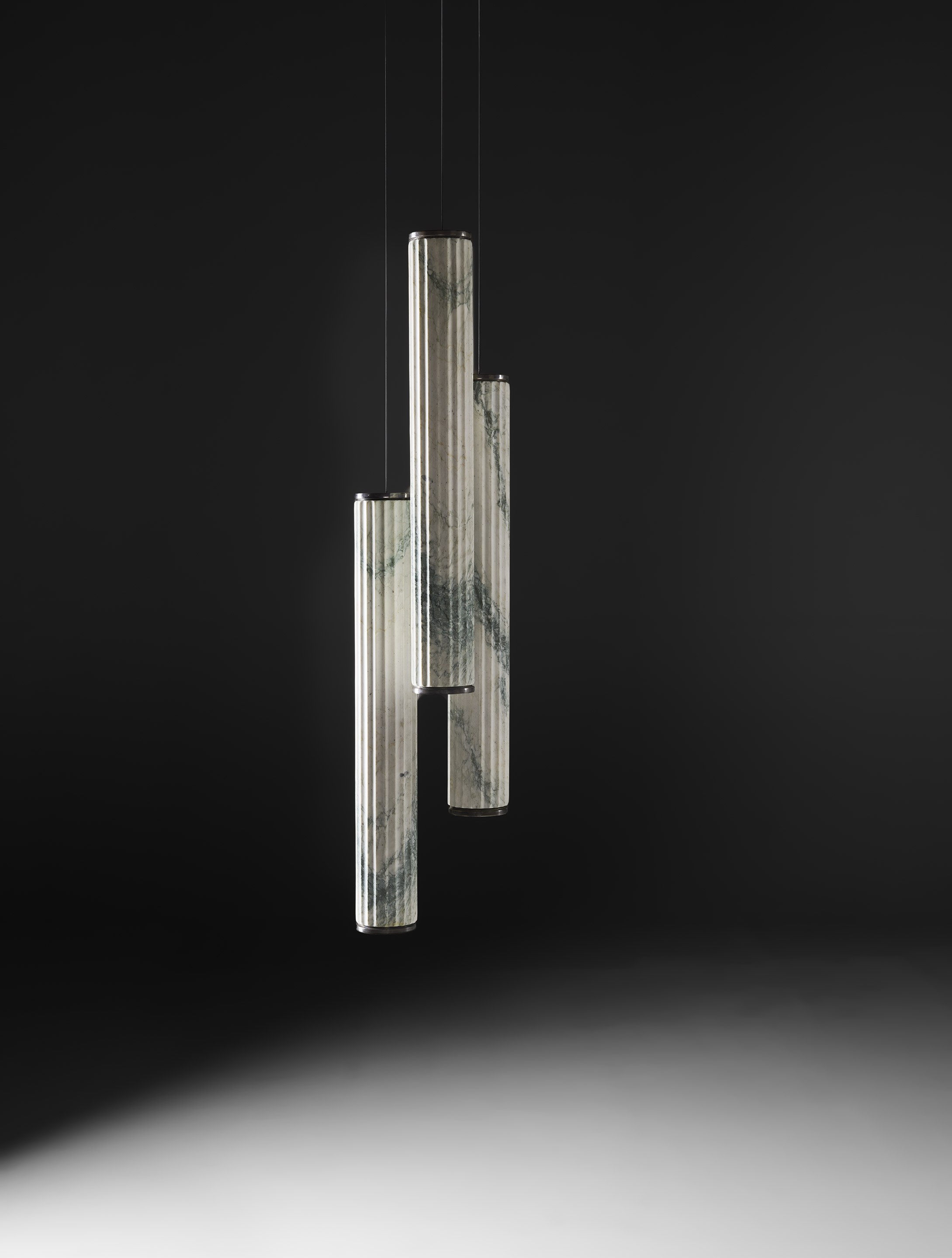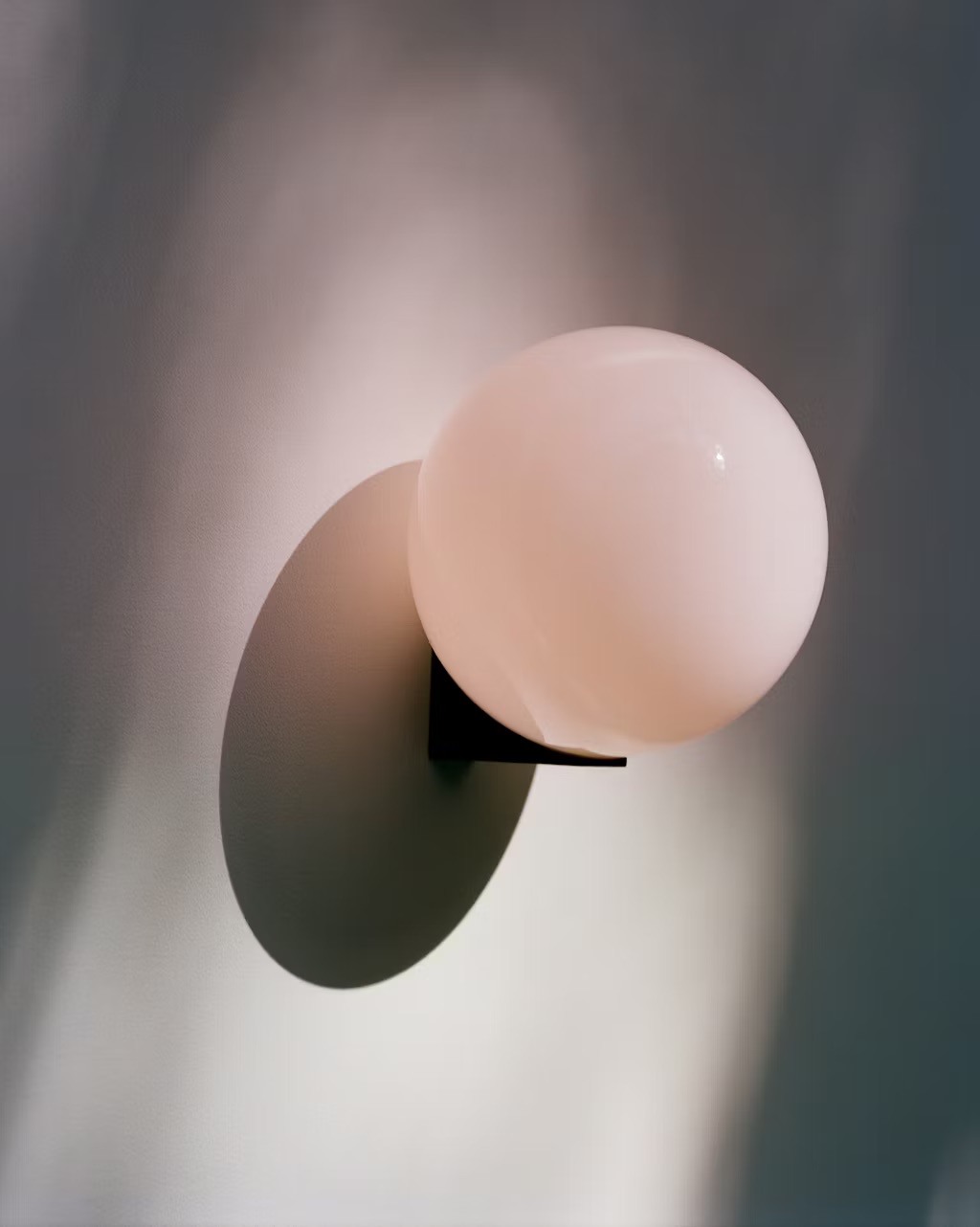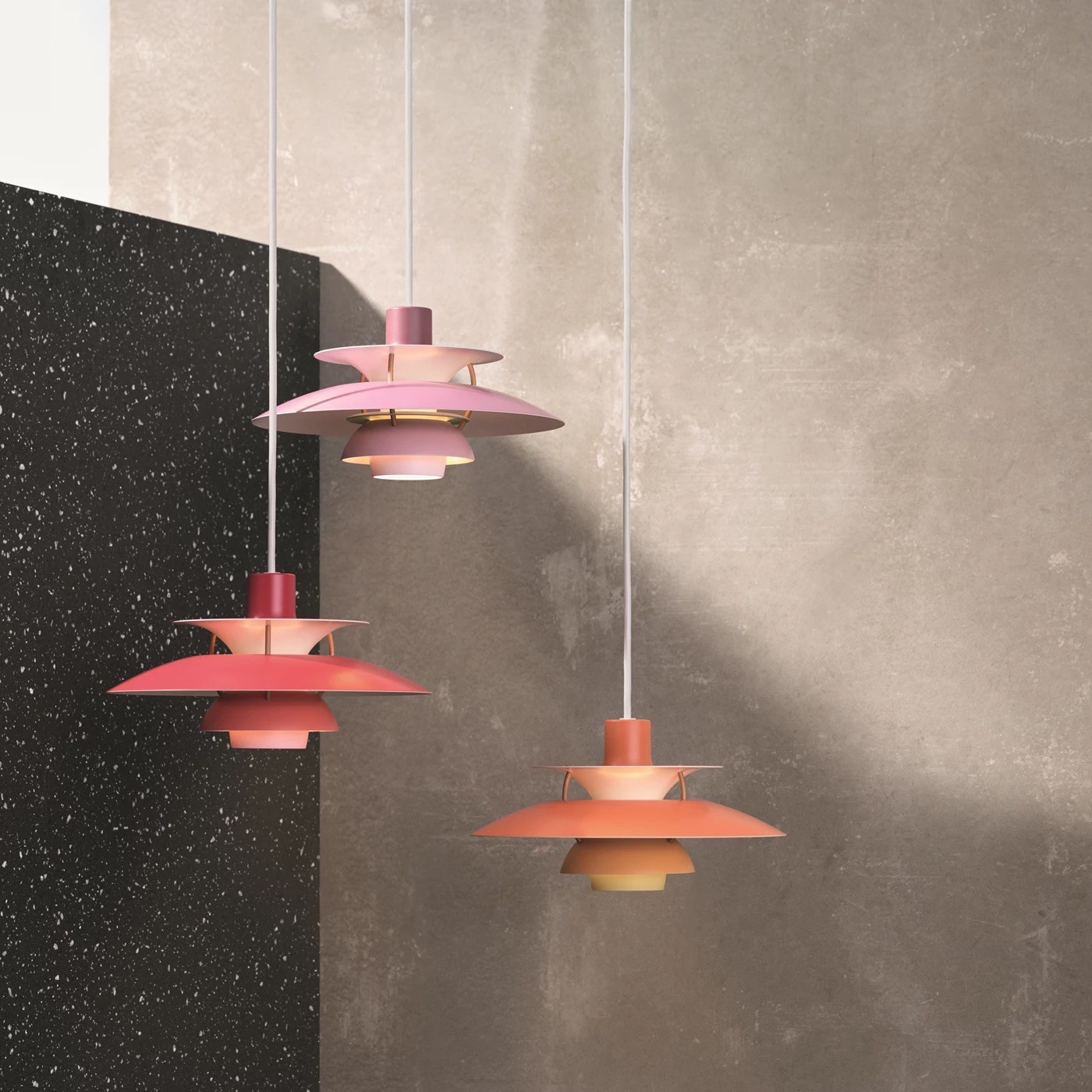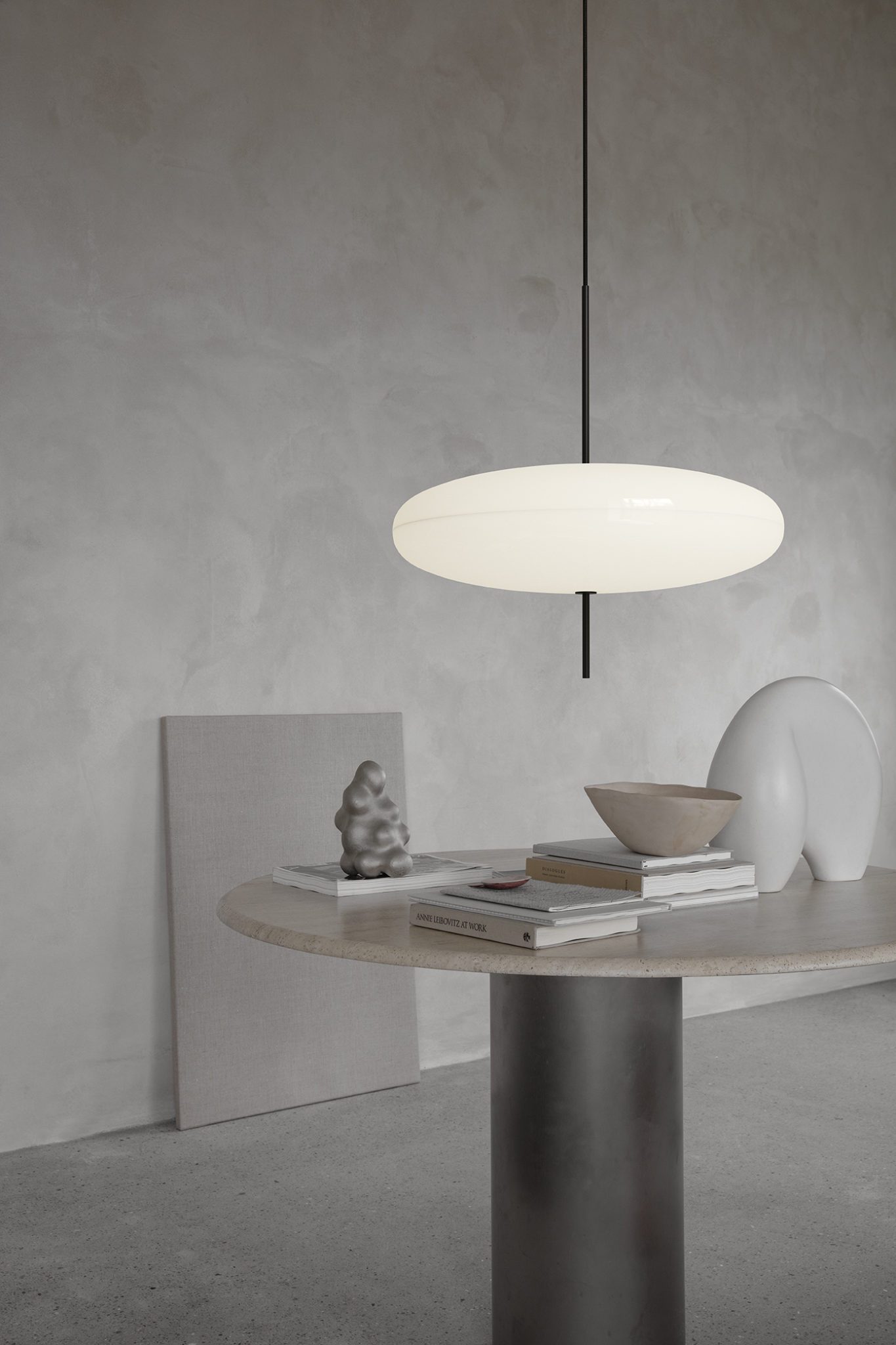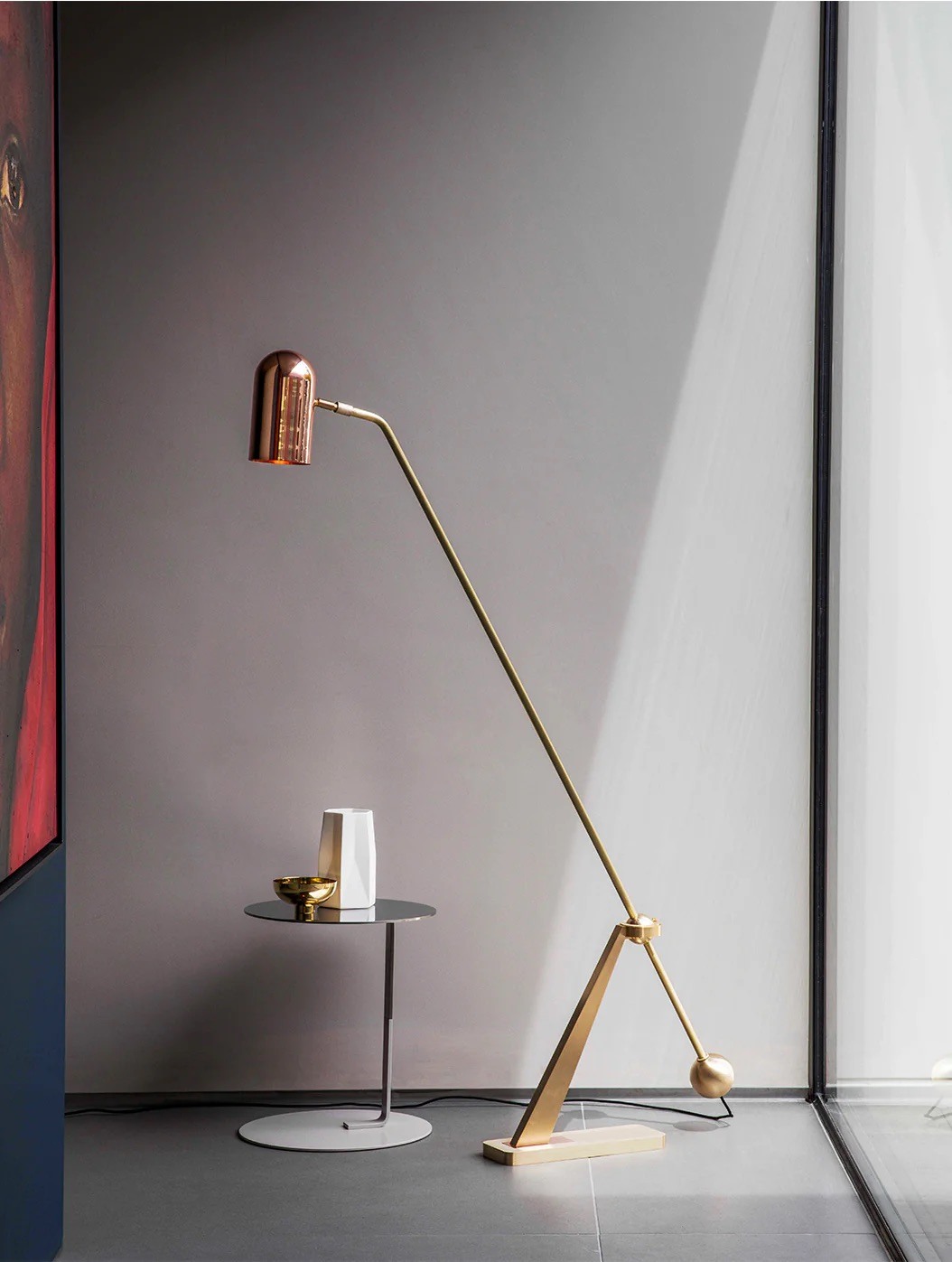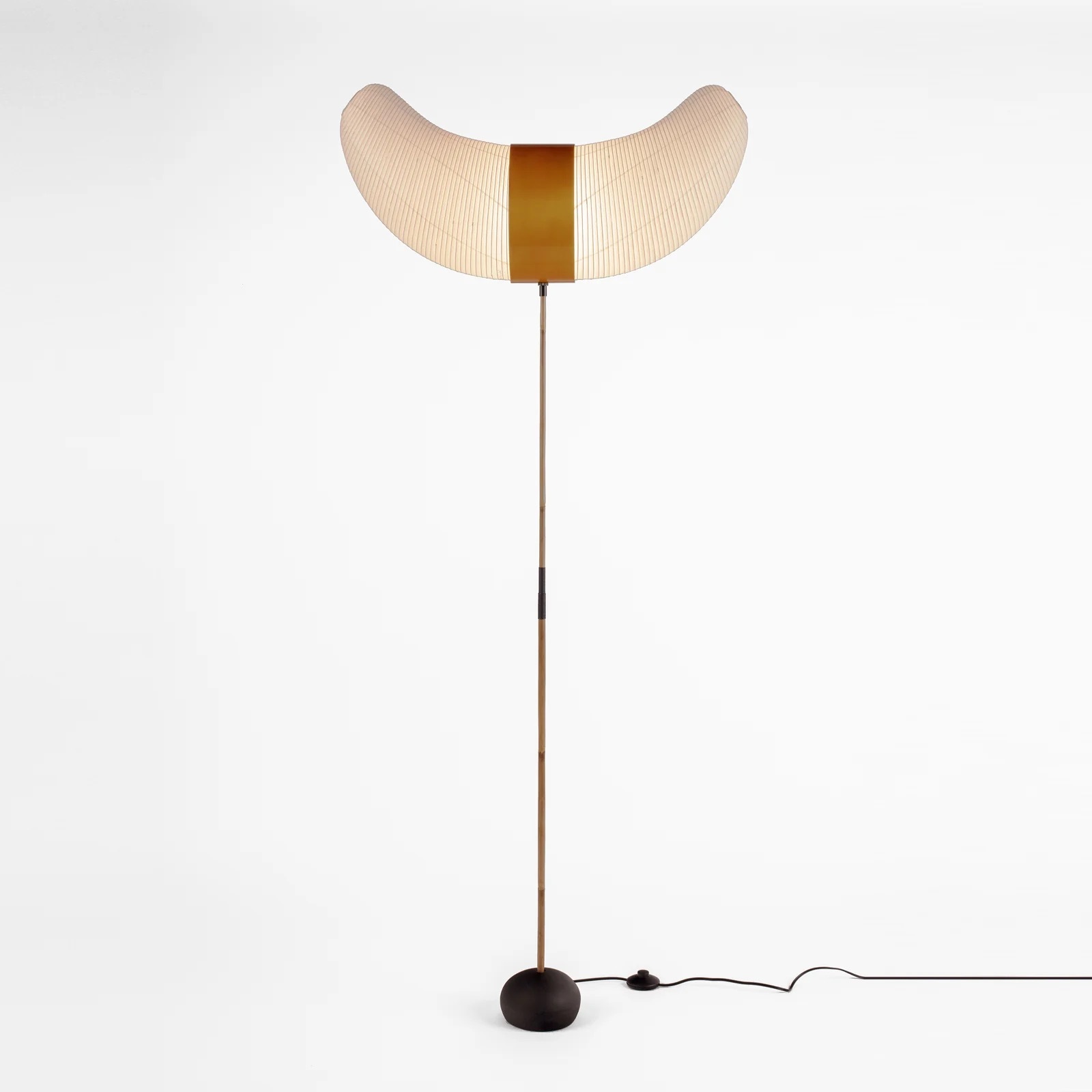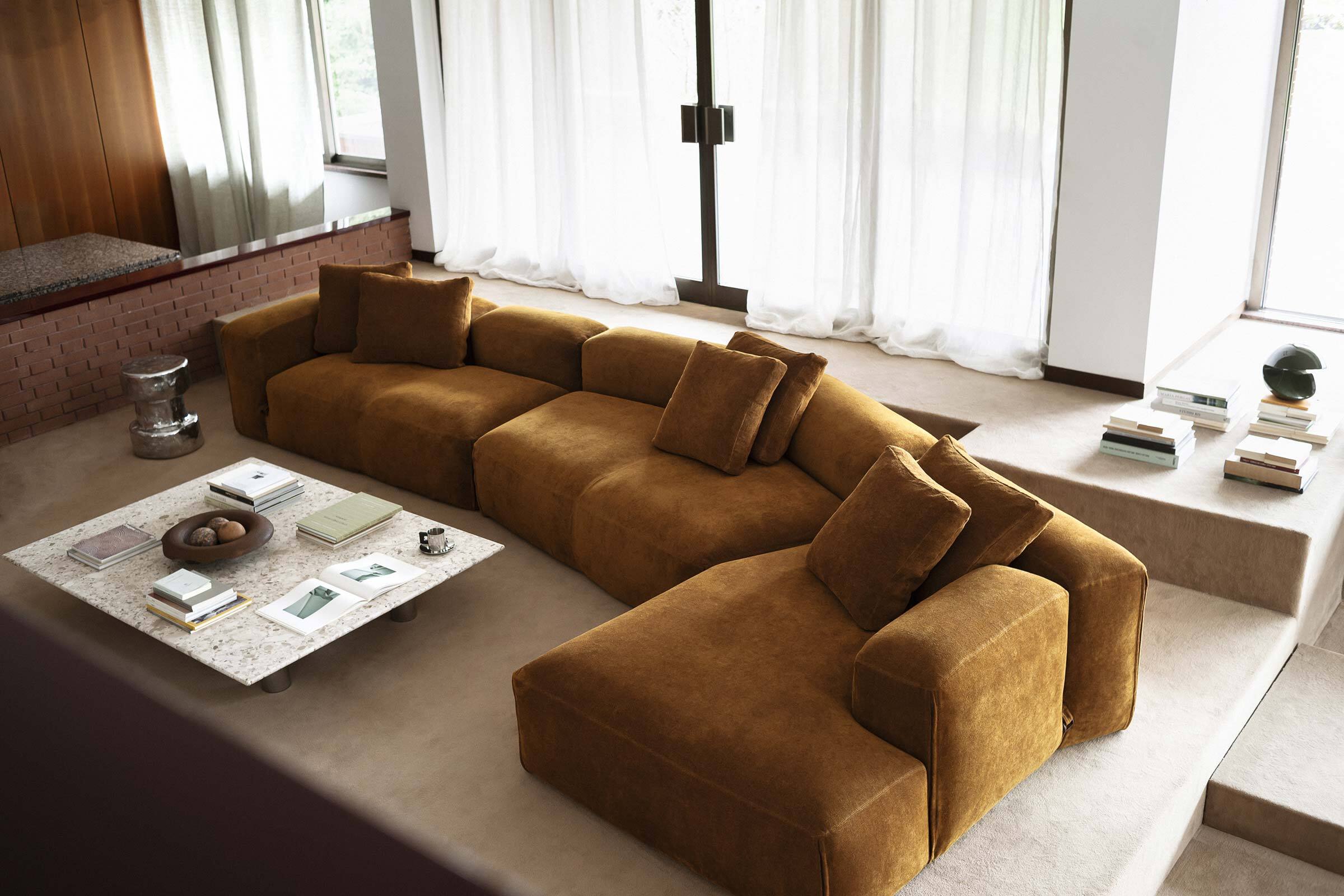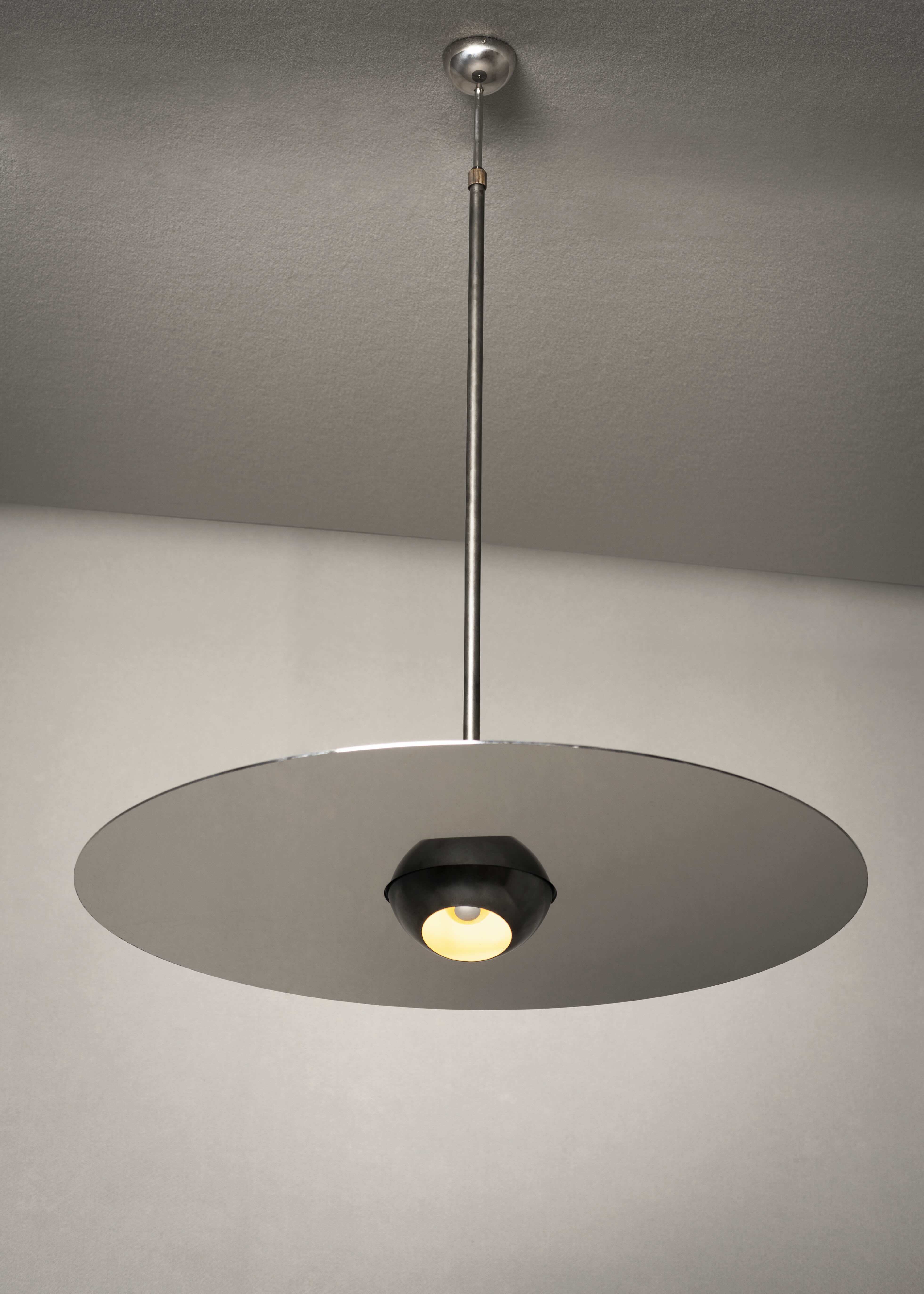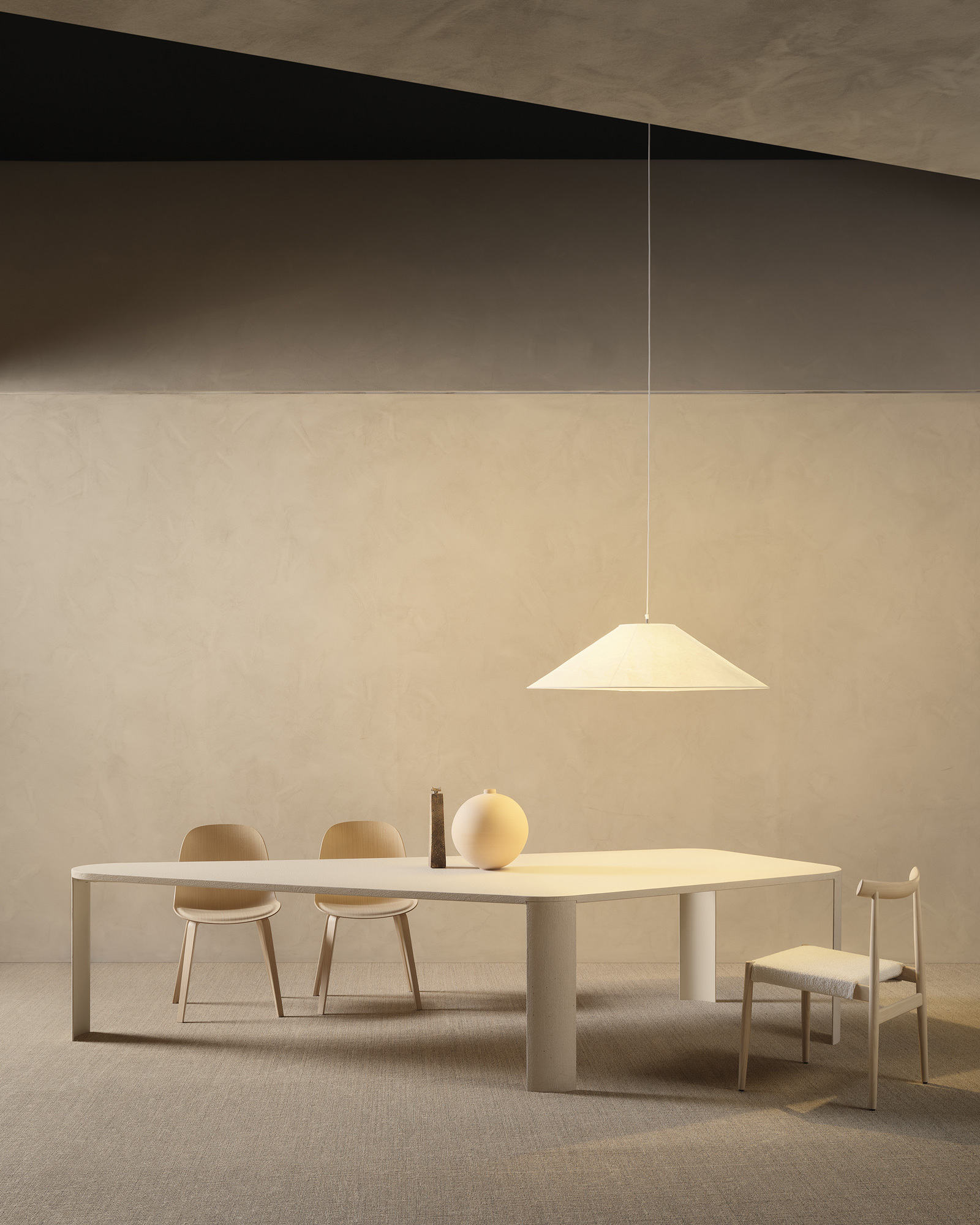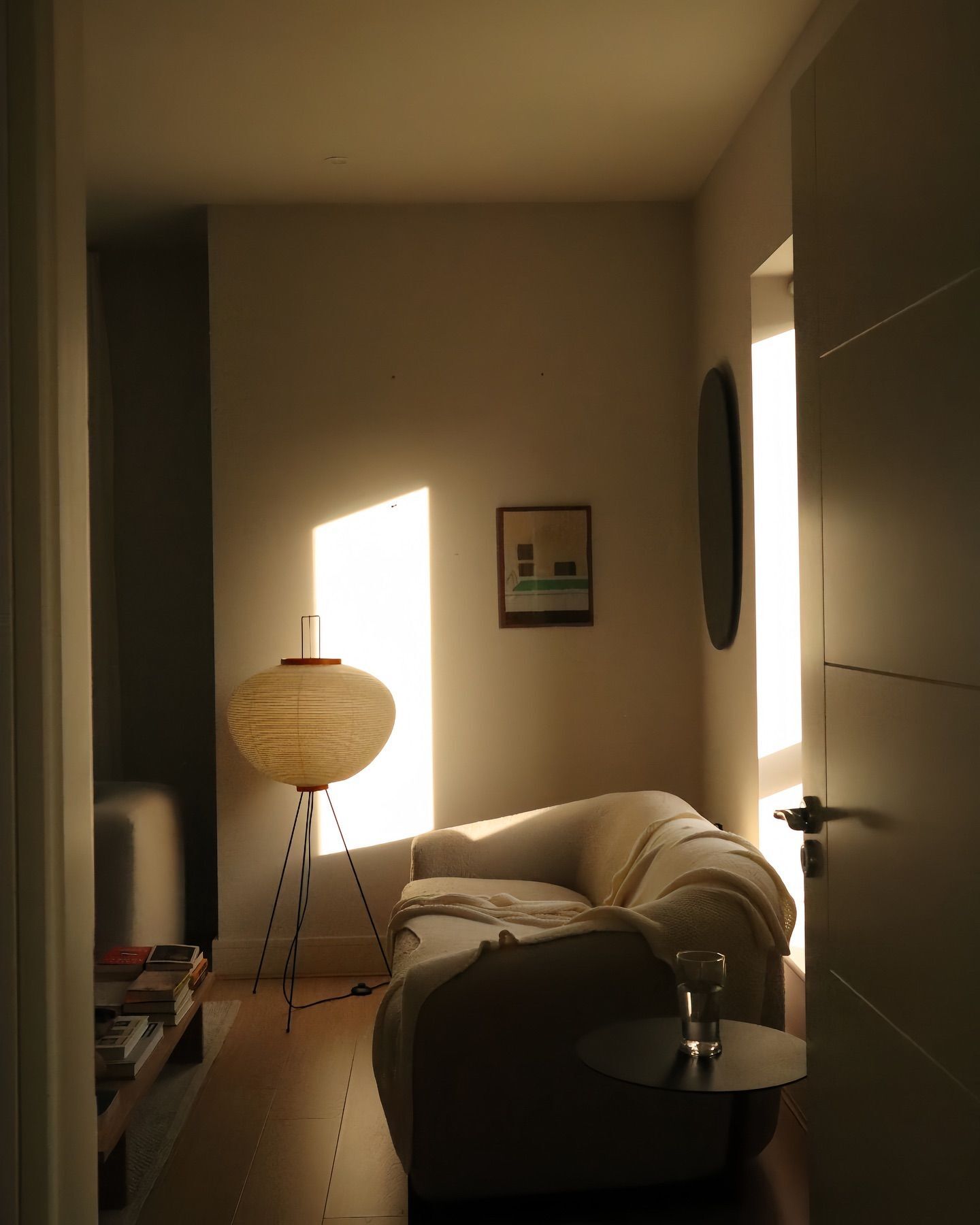Our showrooms will be closed from 24 to 28 Dec and from 31 Dec to 6 Jan. We will be open on 29 and 30 Dec.
Best Wishes for this Holiday Season!
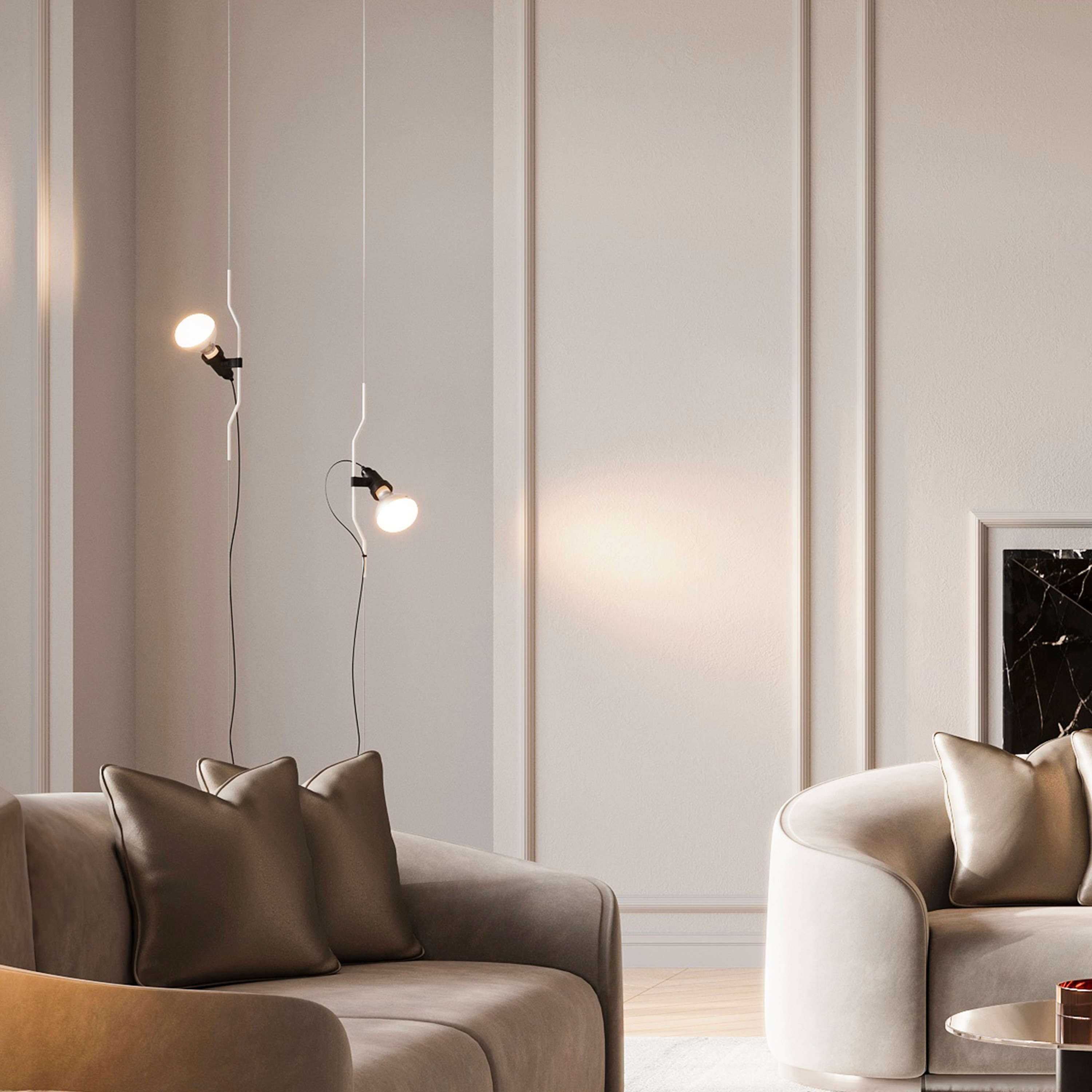
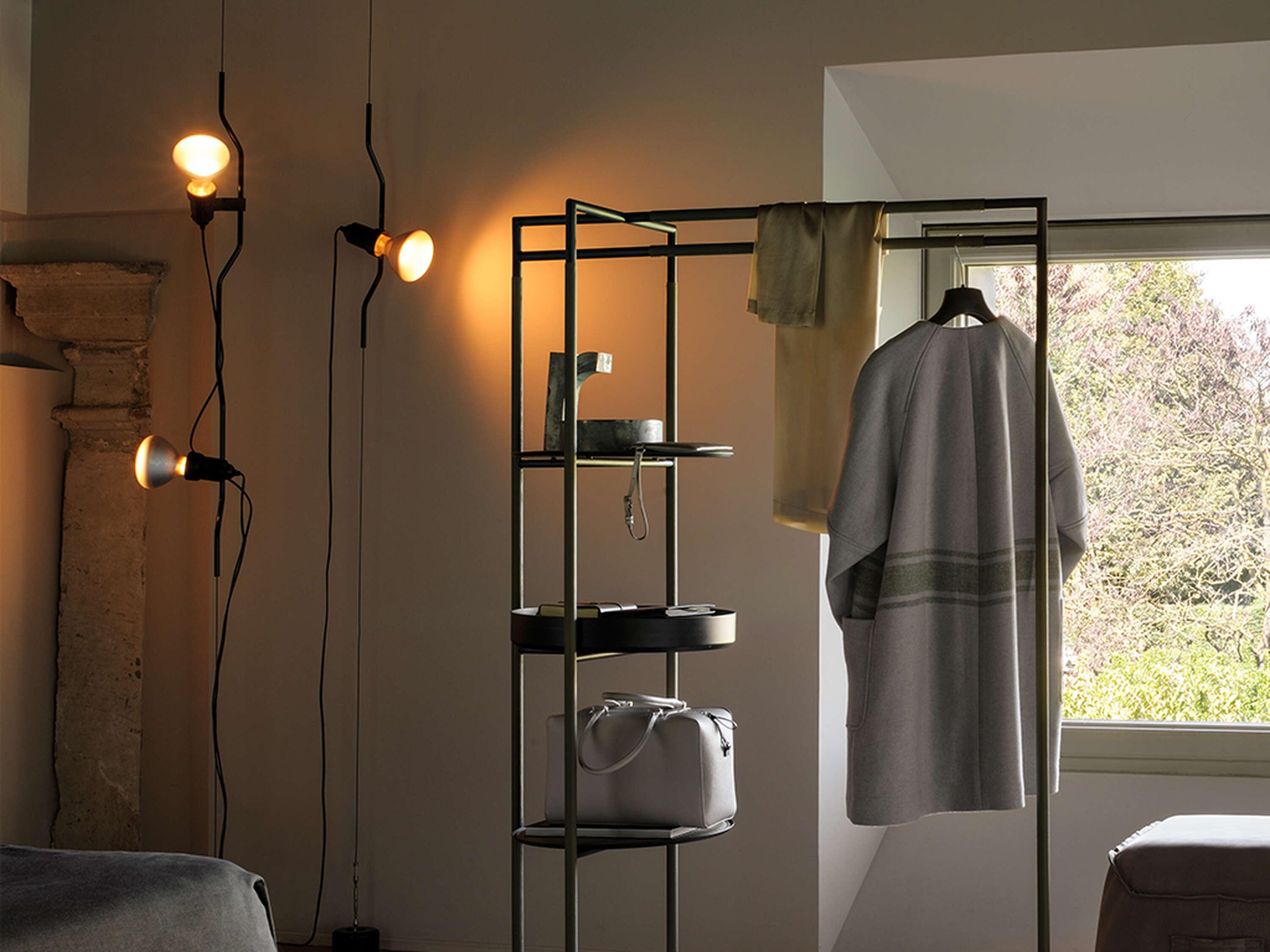
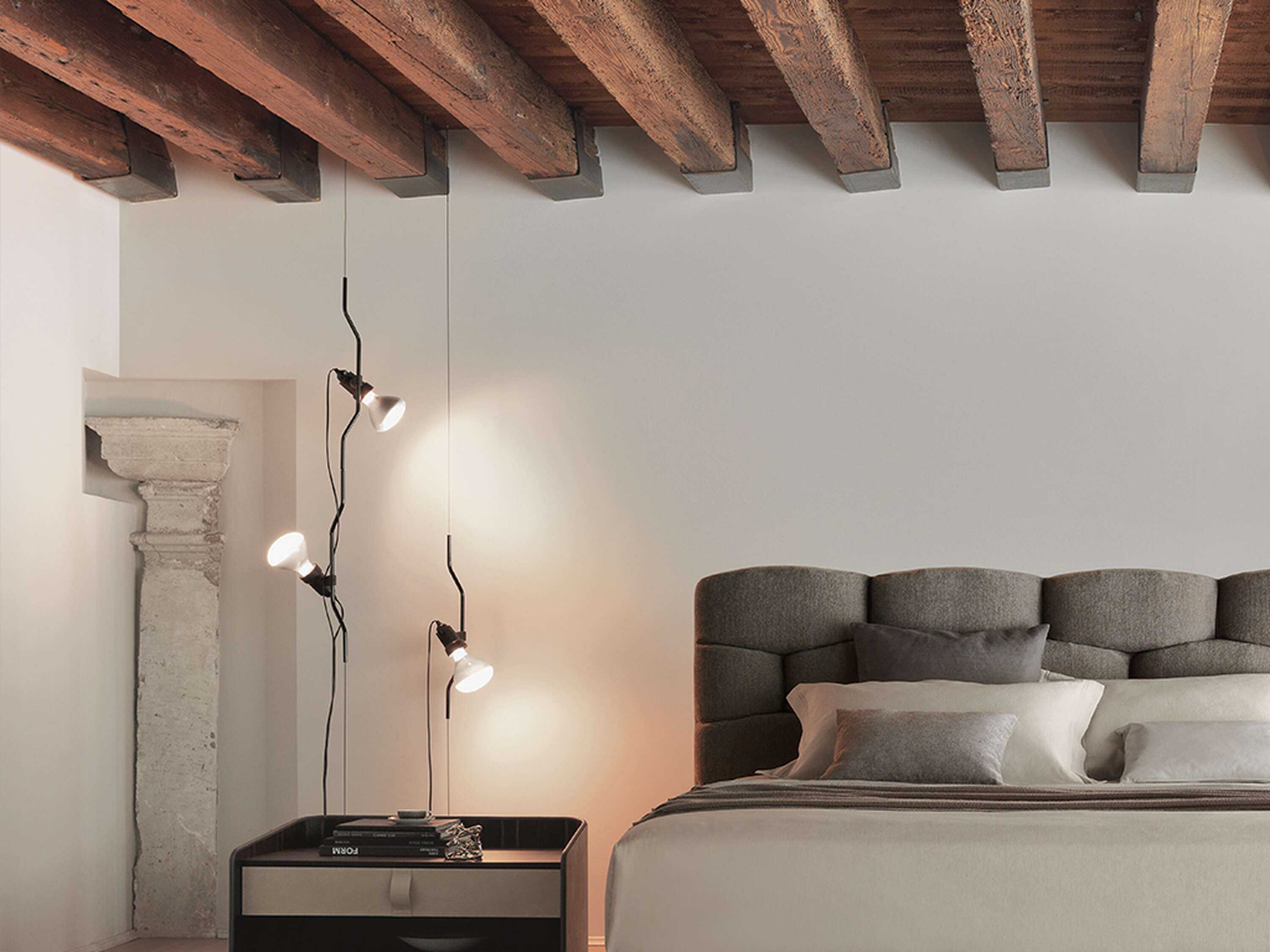
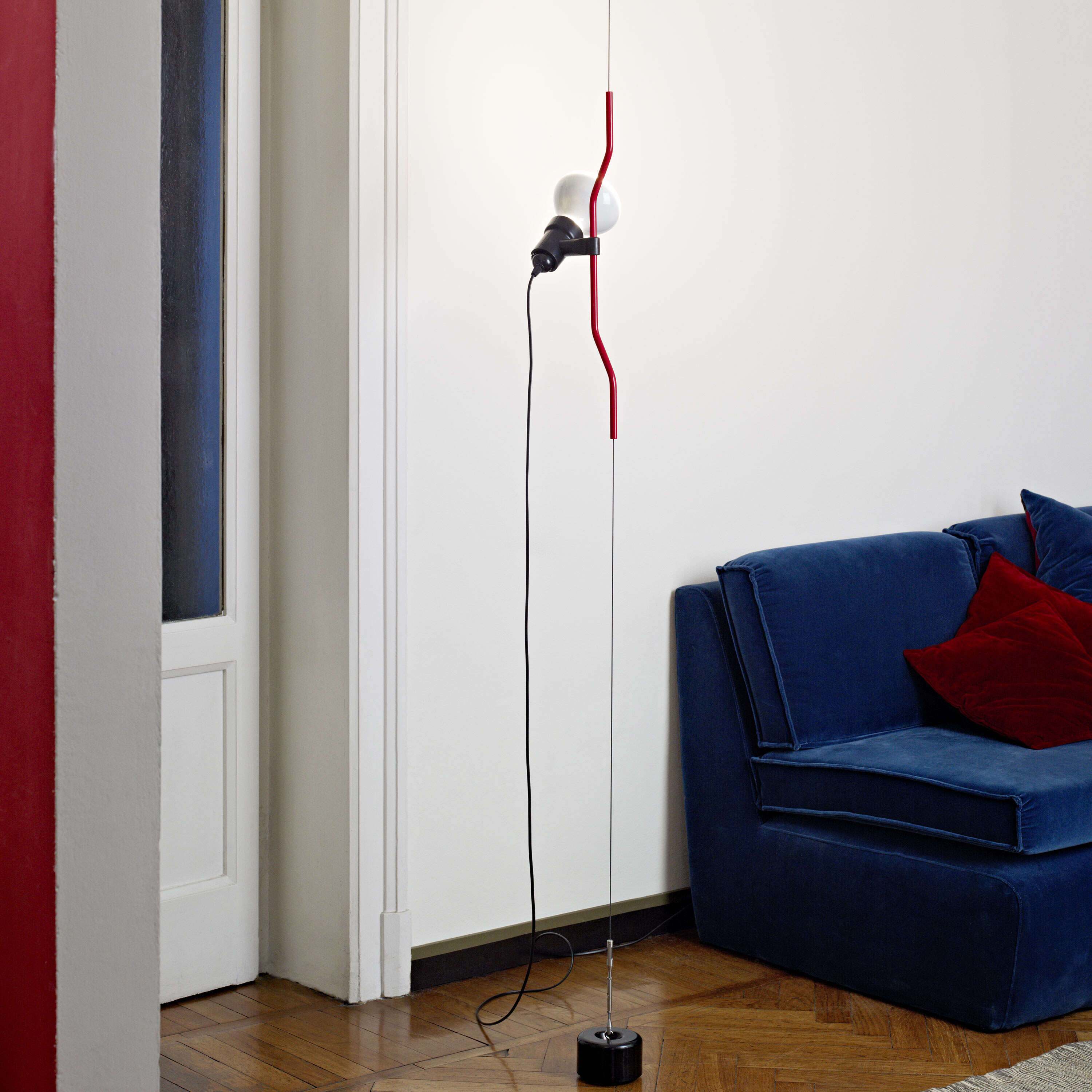




Parentesi
Category
Lighting
Brand
Designer
Dimensions
D 11 cm - L 58 cm - H 400 cm max
Finiture
Metal
Year
1971
Lamp providing direct light. Lamp moves vertically via sliding of a painted or nickel-plated shaped steel tube on a ceiling-to-floor steel cable (4000 mm long). Fixture head made of injection-molded black elastomer housing a switch.
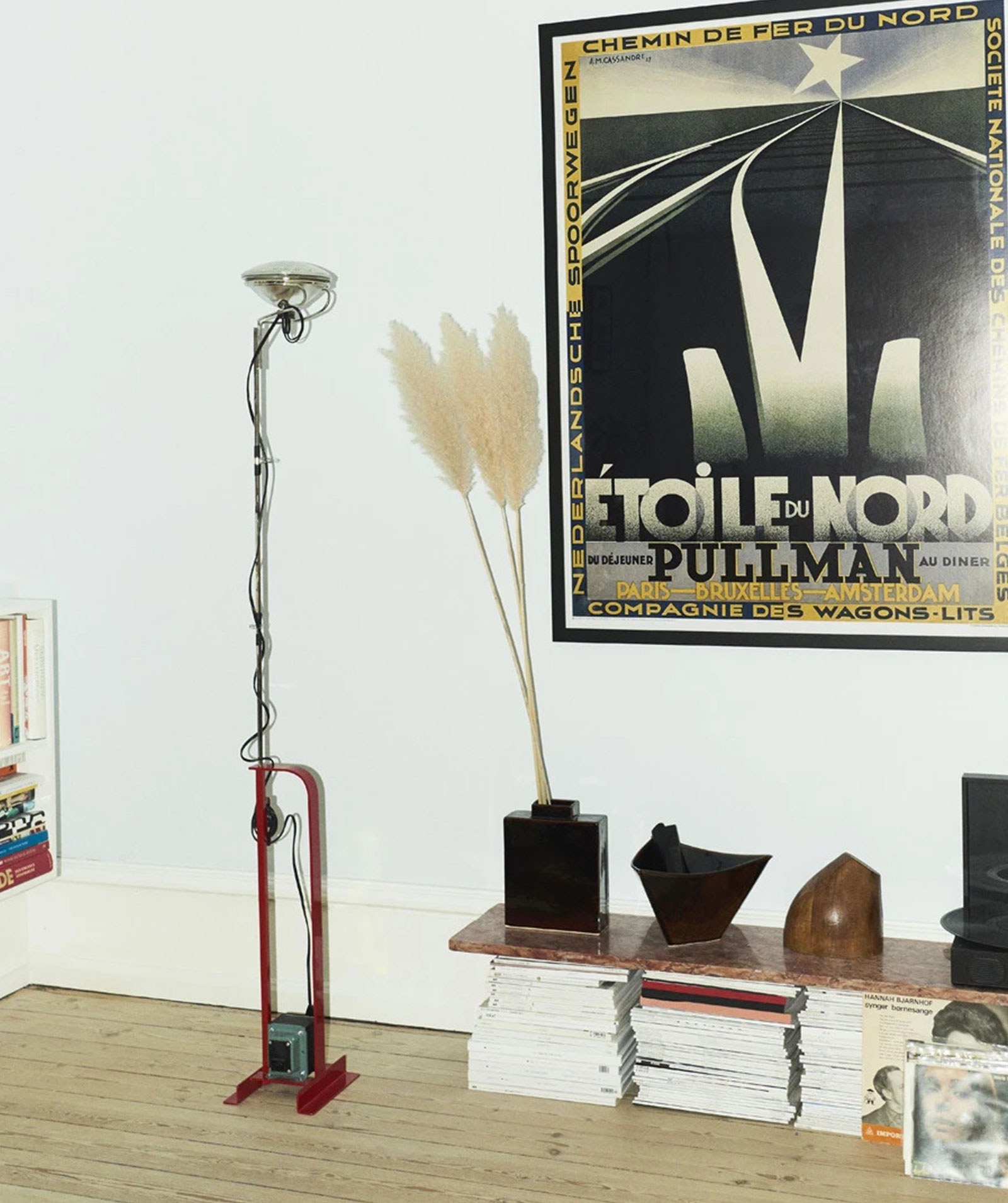
Flos
For fifty years, Flos has been creating objects of light and igniting generations of dreams. Founded in Merano in 1962 by Dino Gavina and Cesare Cassina, it had a period of strong growth starting in the 1970s: it acquired Arteluce, a historic Italian lighting company, inheriting the designs of Gino Sarfatti, still produced today. In the following decades it absorbed other companies and increasingly expanded the already very rich portfolio of designer lamps. The principles of Flos have always been to identify with the masters of design, to discover new talents, to have technical and technological authority and to integrate into mass culture. Flos has always been a cutting-edge company: experimentation has made it possible to adopt revolutionary materials, such as the cocoon in the past, and more advanced technological solutions, represented today by OLED and sustainable materials.
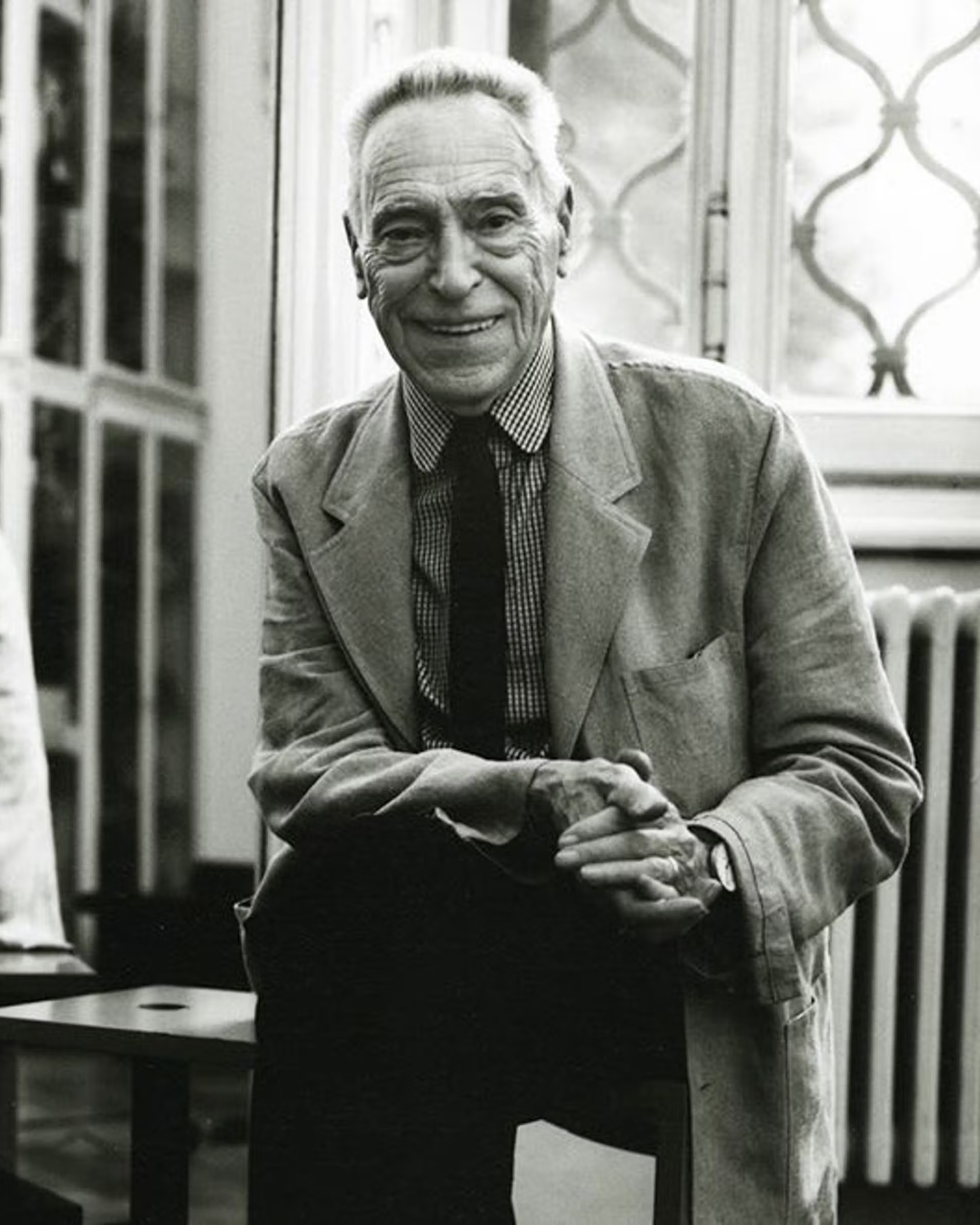
Achille Castiglioni
Achille Castiglioni, born in Milan in 1918, was an Italian architect and designer. Influenced by the work of his father Giannino, a sculptor who was particularly active between the two wars, he is globally recognized for his "plastic" approach to design. He graduated in architecture at the Polytechnic University of Milan in 1944. Castiglioni often worked for the Triennale of Milan and in 1956 became a founding member of the Industrial Design Association. In the 1960s he was a professor at the Polytechnic University of Turin and set up his personal studio in Milan together with his brother Pier Giacomo, with whom he worked until his premature death in 1968. During his life he held several professorships, which included Industrial Artistic Design and Interior Architecture in Turin and Industrial Design at the Polytechnic of Milan. He continued to work in his studio alone until 2002, year of his death.
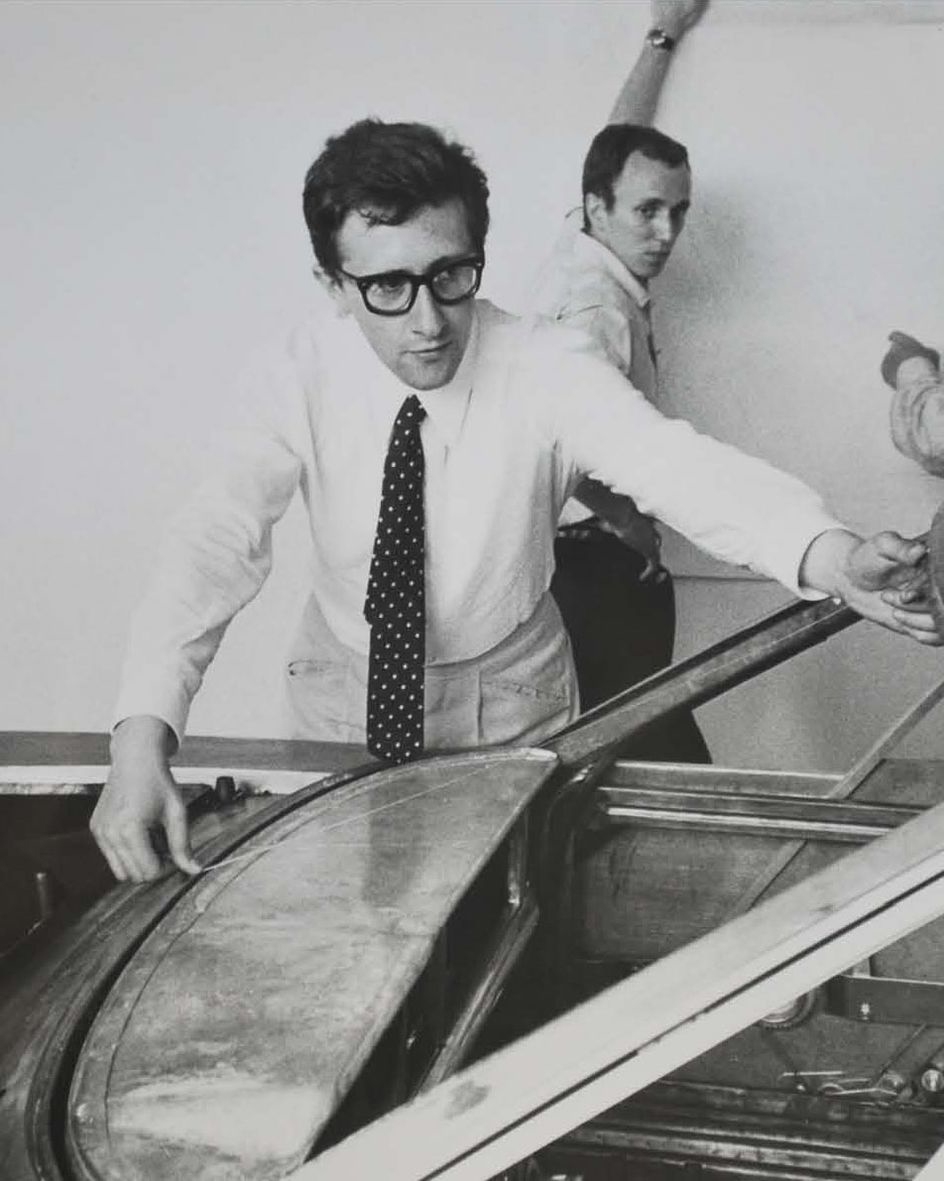
Pio Manzu
Pio Manzù (1939–1969), son of sculptor Giacomo Manzù, studied at the Hochschule für Gestaltung in Ulm, where he refined his precise and experimental approach to design. By 1967, he was collaborating with Fiat, creating visionary projects such as the City Taxi, the Autobianchi Coupé, and the iconic Fiat 127. Alongside his work in automotive design, Manzù developed objects that would become design classics: the Cronotime clock for Ritz Italora, the Parentesi lamp for Flos, and the Portaoggetti desk organizer for Kartell. His “physiological armchair,” conceived in 1967 for La Rinascente, and the one-leg table designed for the Agnelli residence in Rome, were later reissued by Alias in 2011 and 2018. A true pioneer of ergonomics, Manzù explored the relationship between humans and machines with a rare clarity of vision. His rigorous process went beyond formal invention, addressing deeper questions of function, comfort, and the psychological dimensions of use. Through this approach, Pio Manzù helped shape a new paradigm of modern design—one where technology and human experience could meet in harmony.
Results for:
No Results
Discover the selection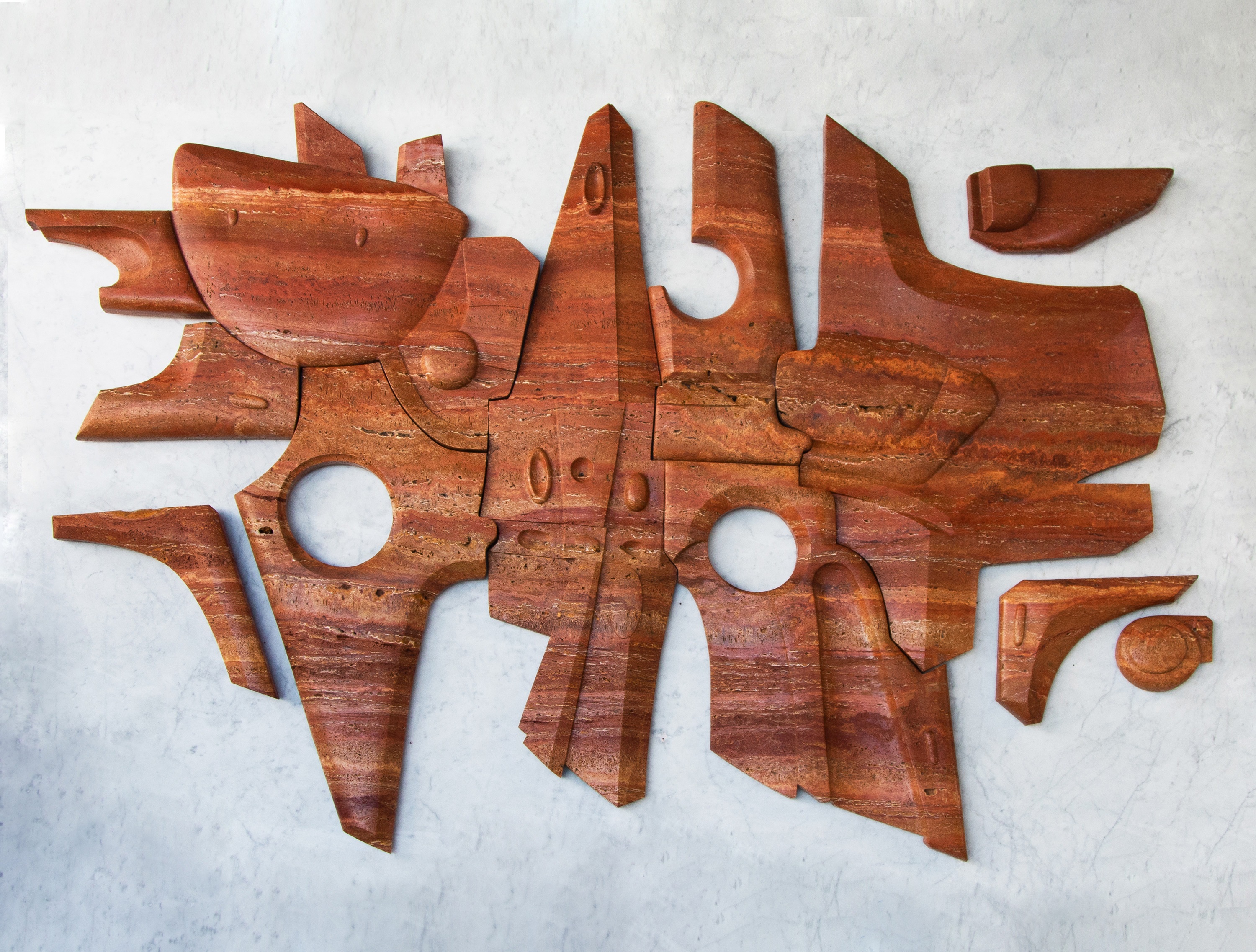
Murals
Olivia Cognet
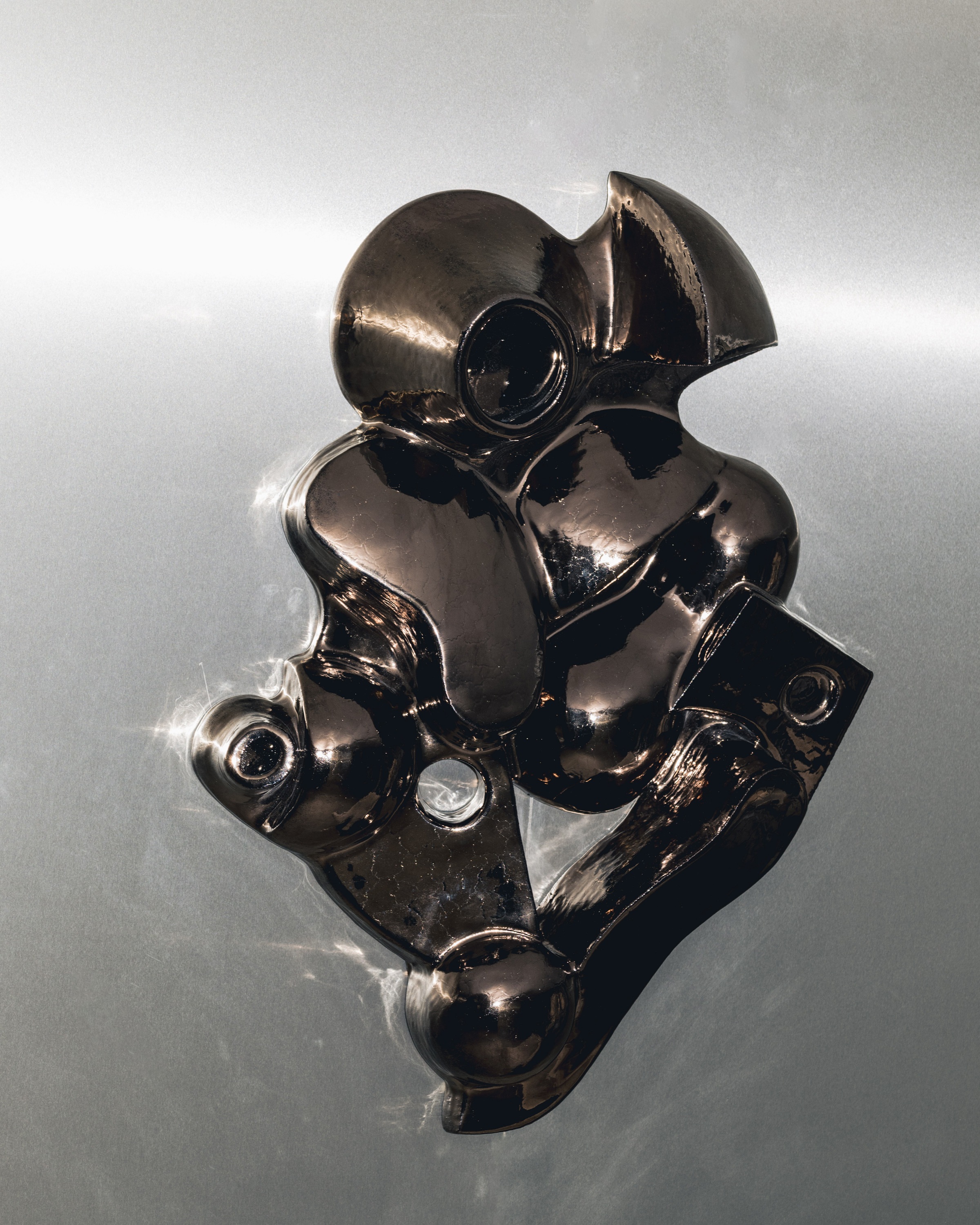
Mini Murals
Olivia Cognet
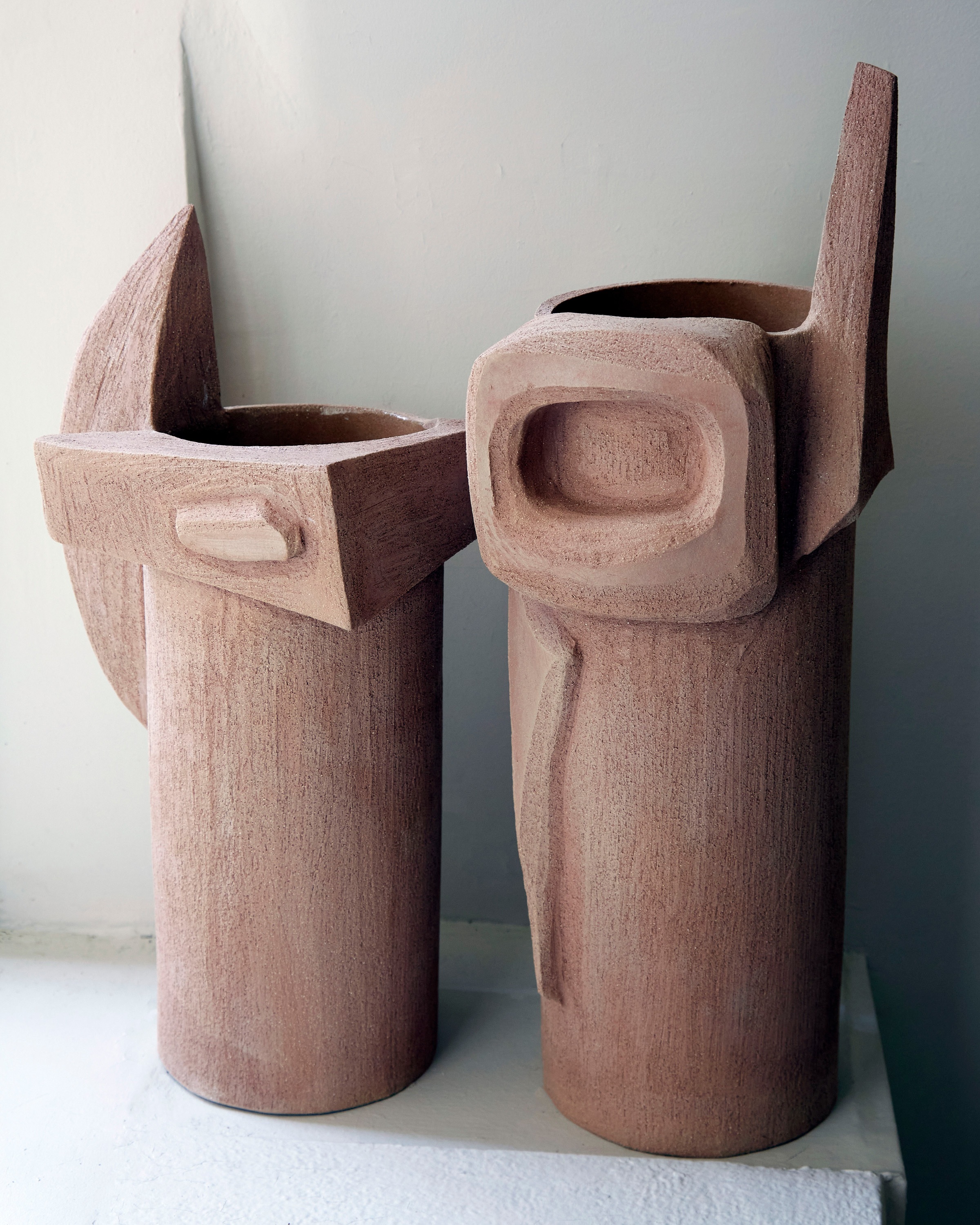
Vases
Olivia Cognet
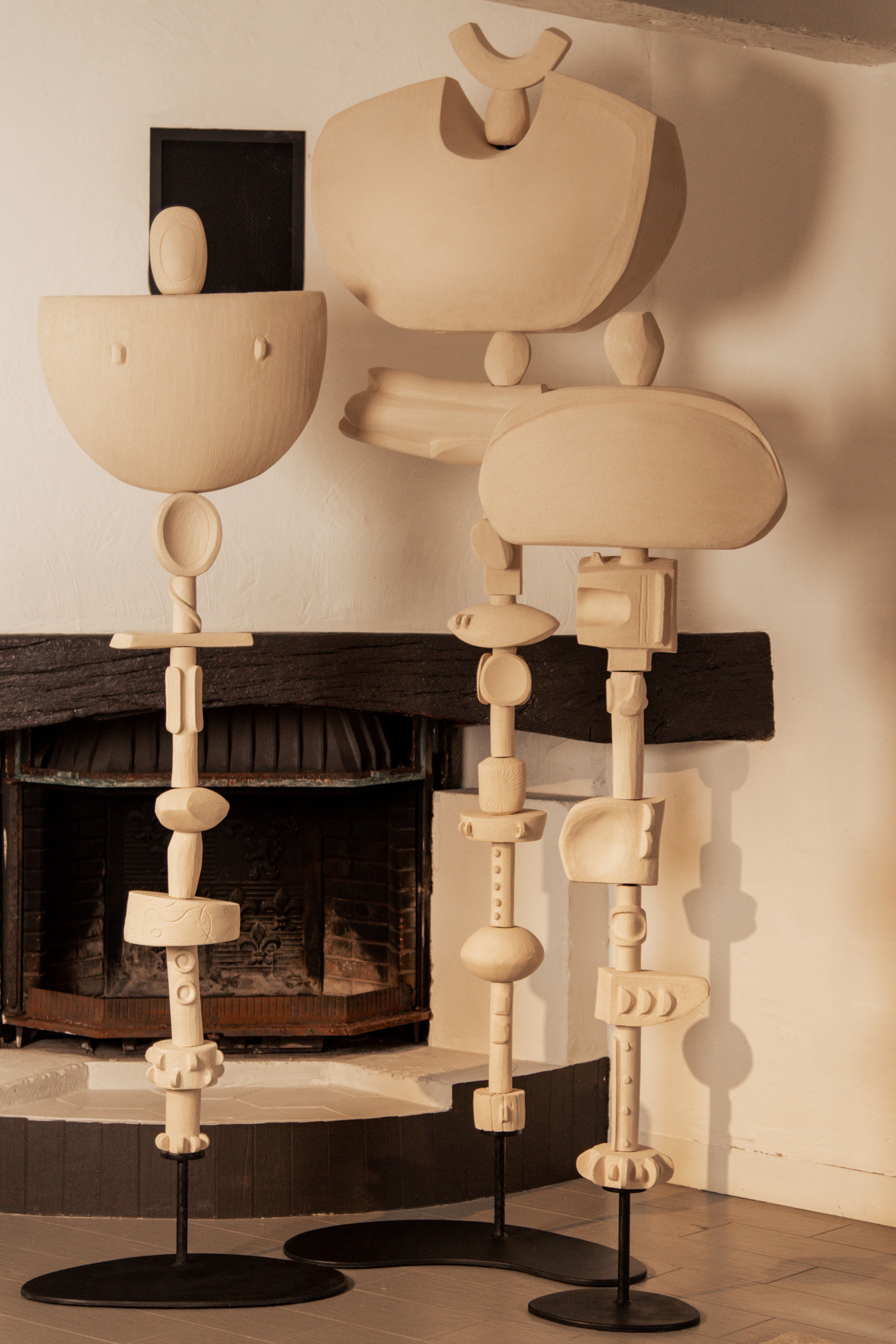
Totems
Olivia Cognet
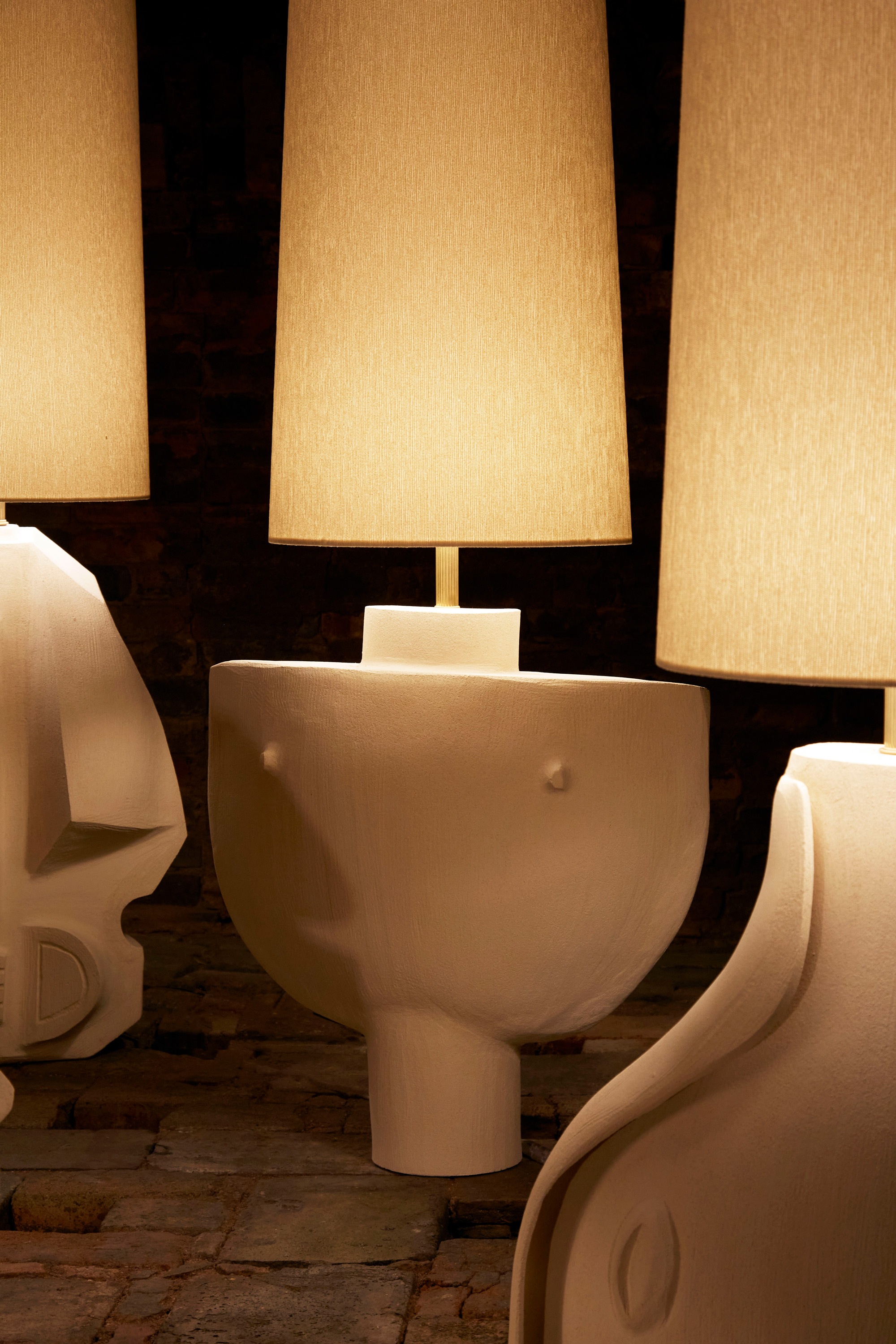
Lamps
Olivia Cognet
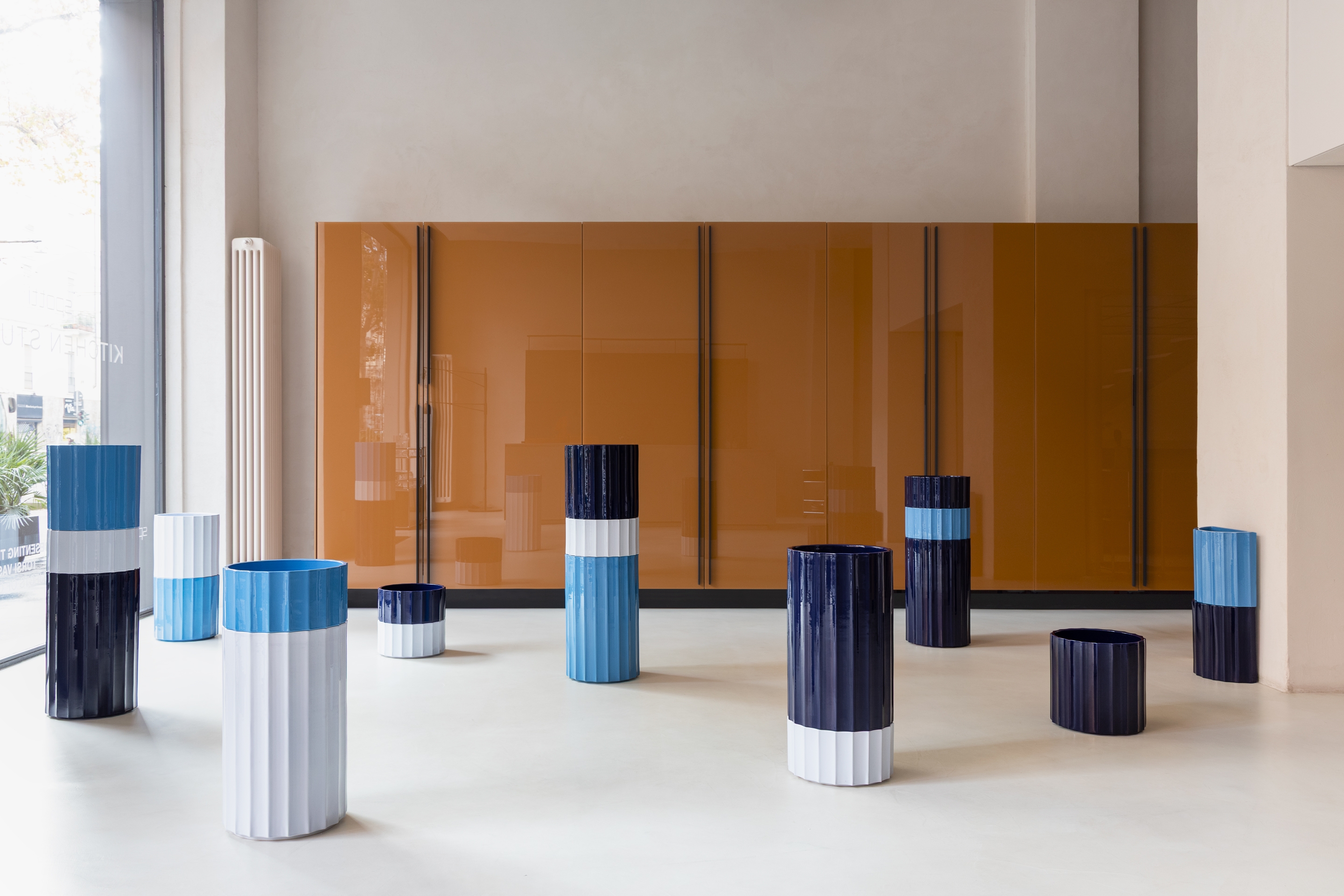
Torsi
Bitossi Ceramiche
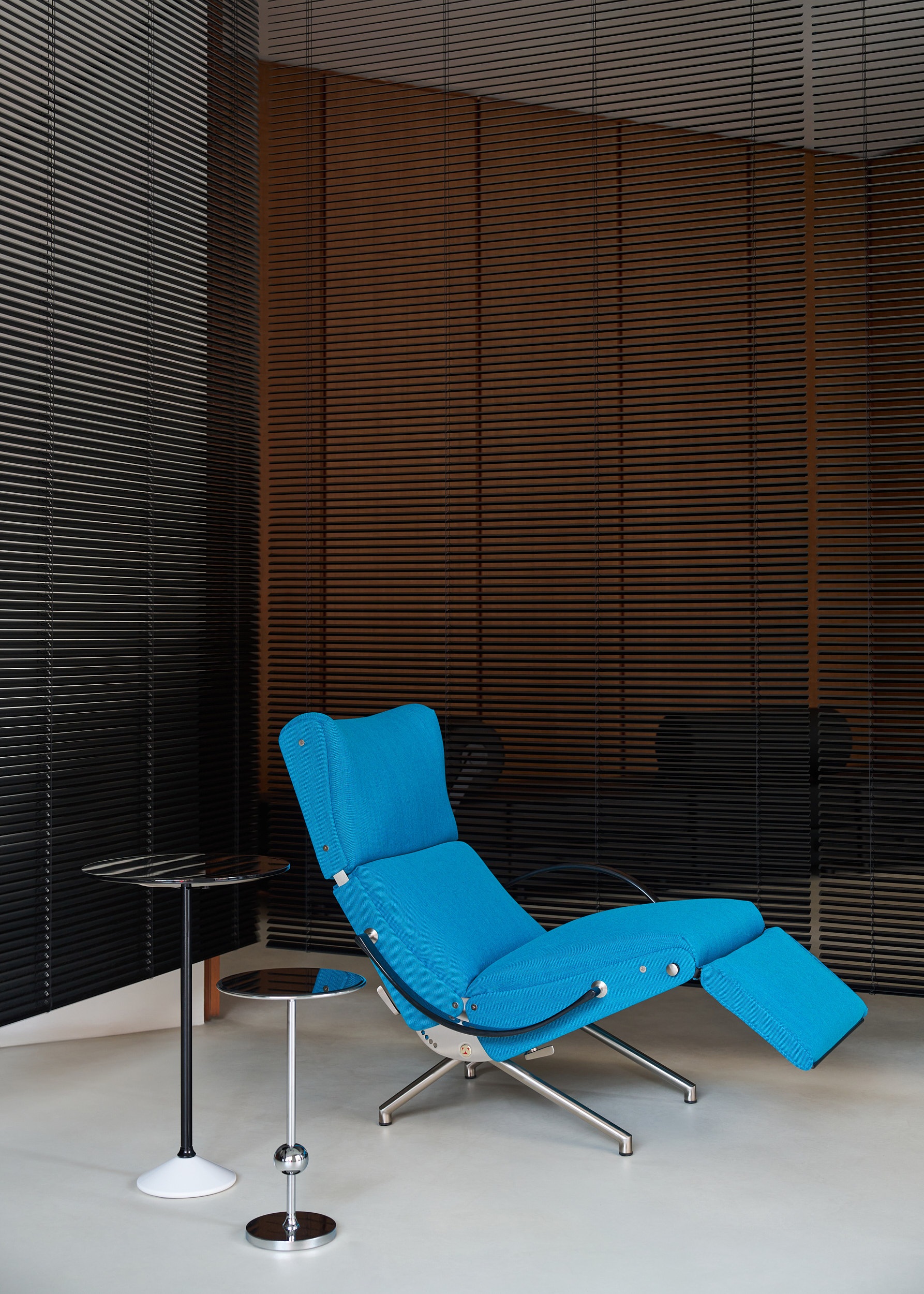
P40
Tecno
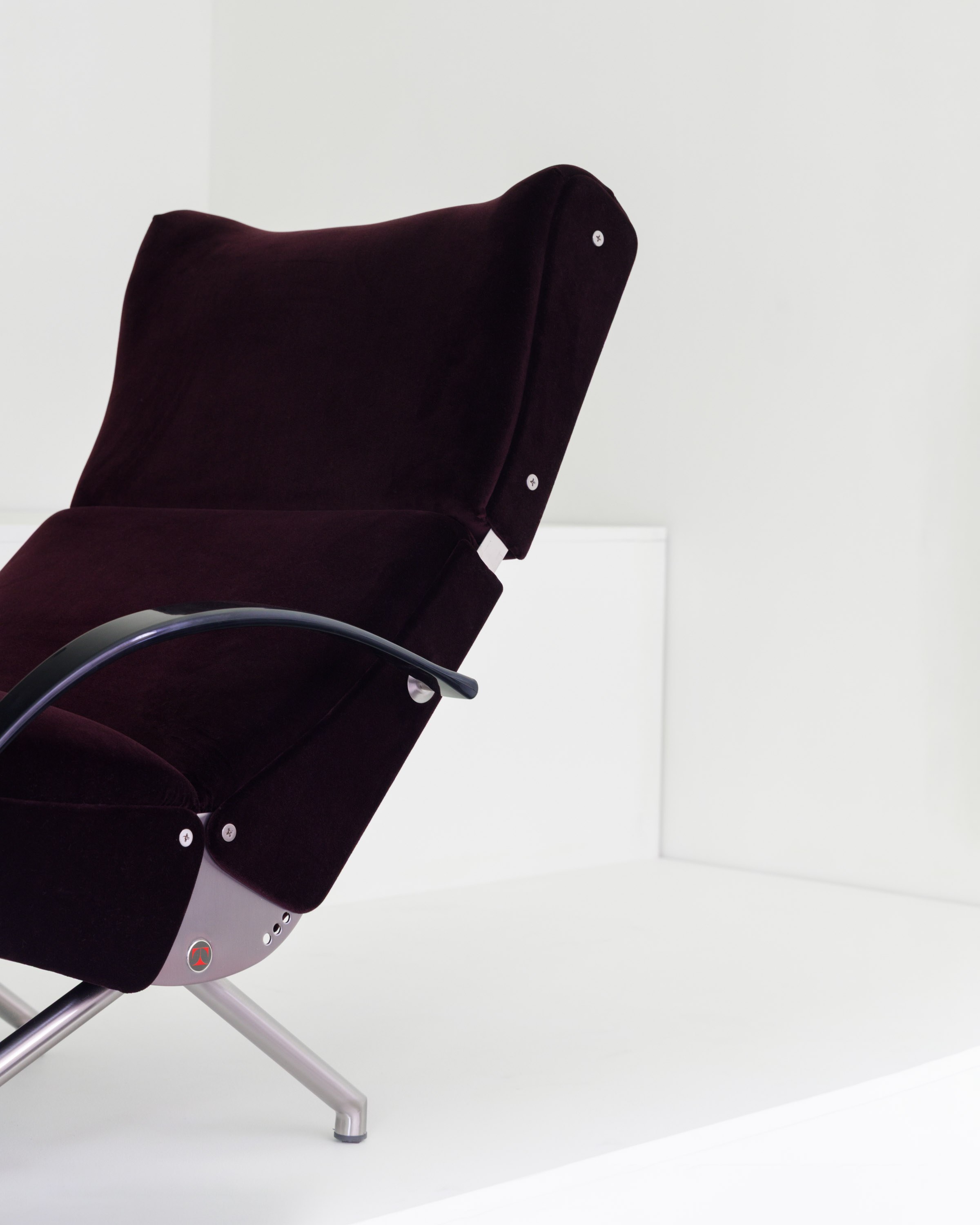
P40 70th Anniversary
Tecno
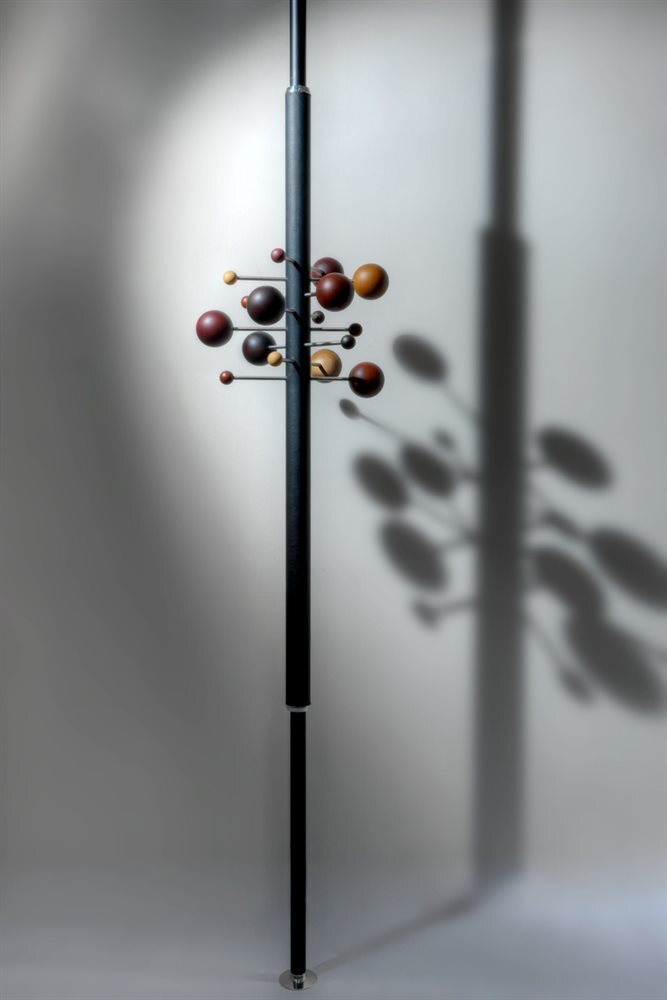
AT16
Tecno
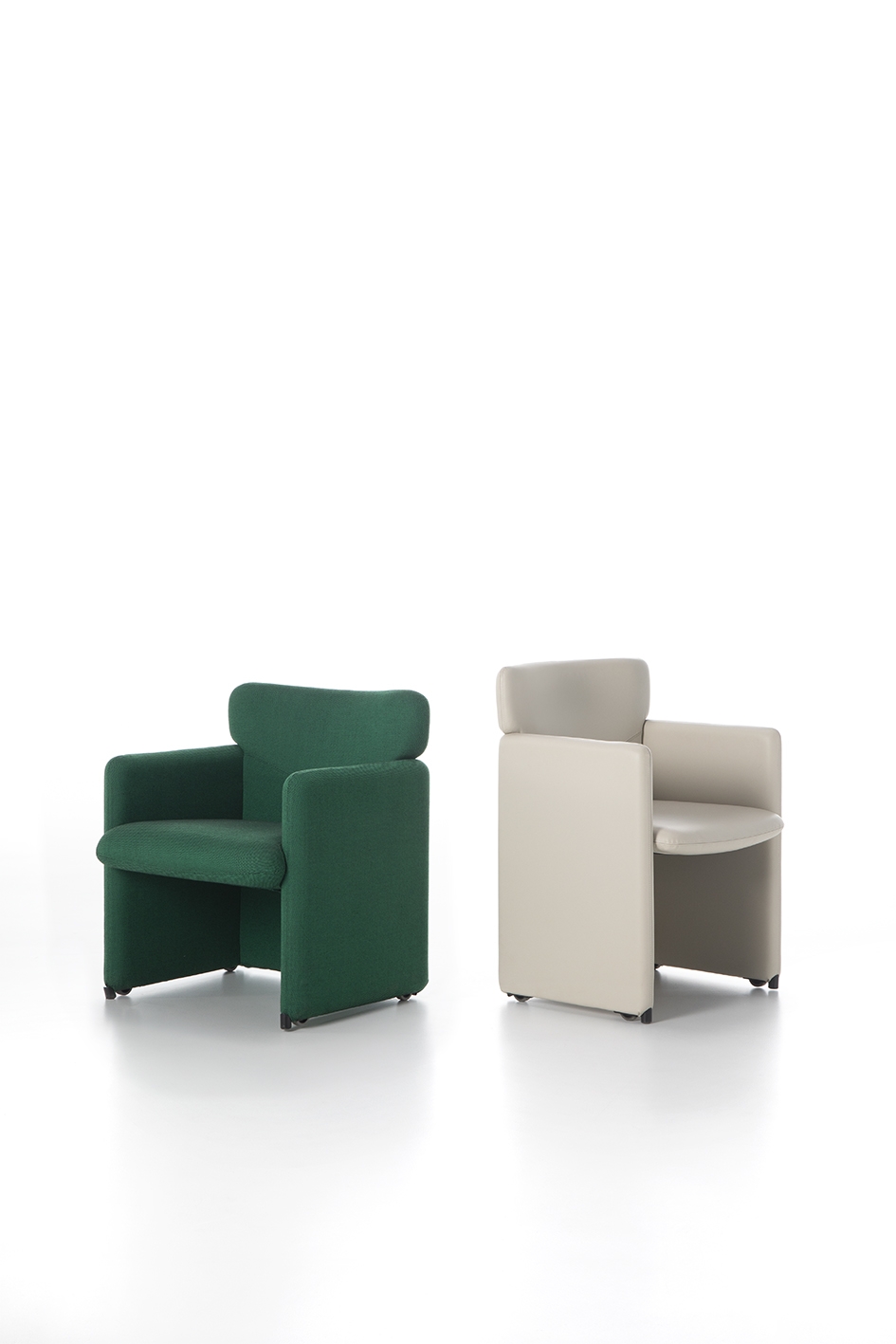
Serie 148
Tecno
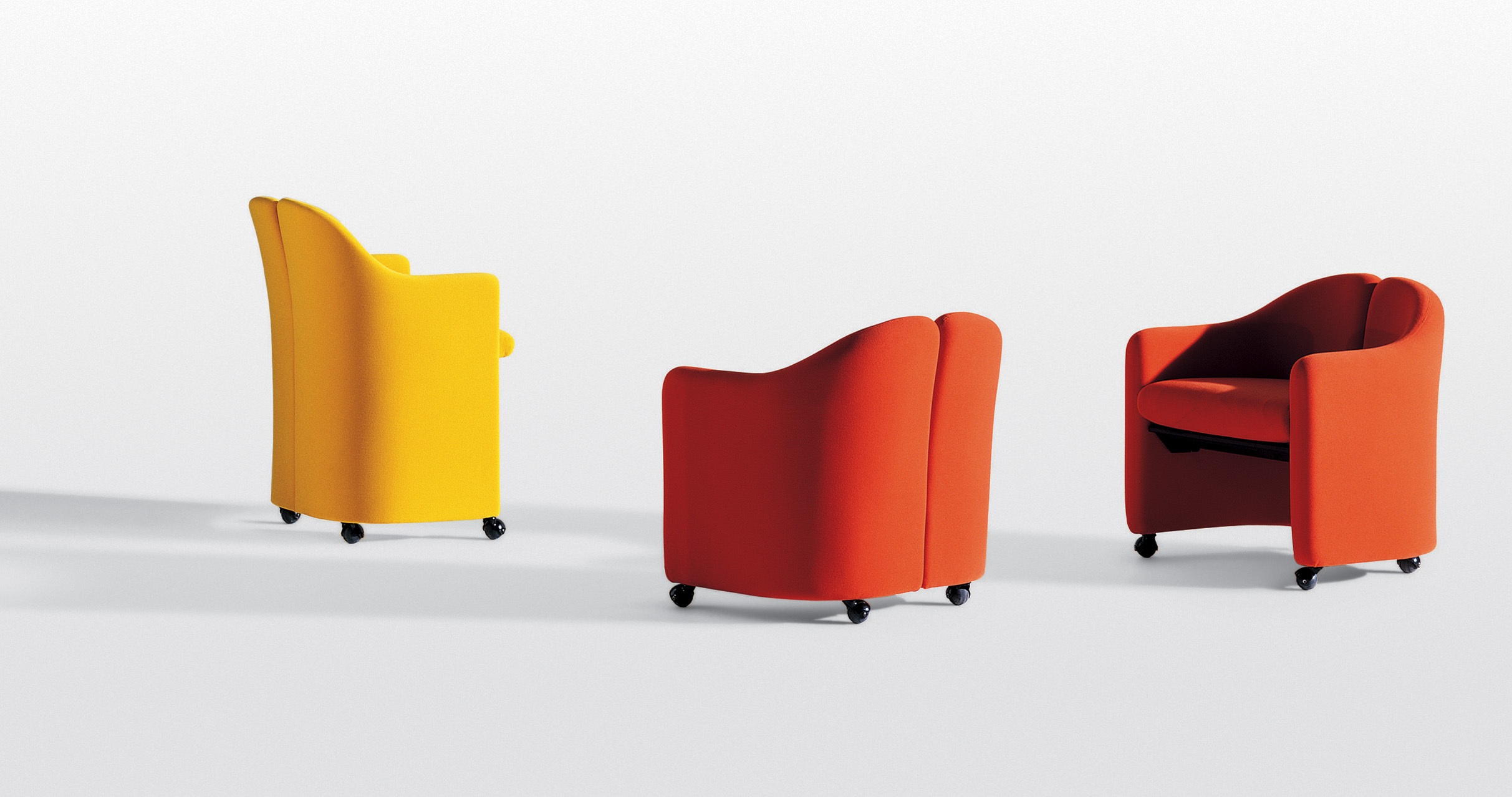
Serie 142
Tecno
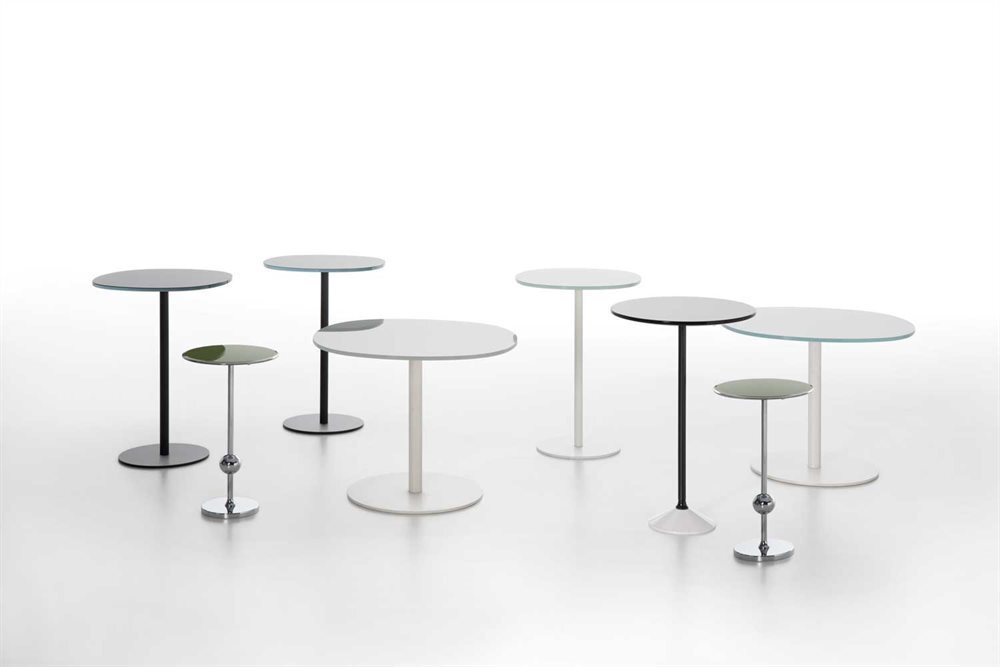
T1-T2
Tecno
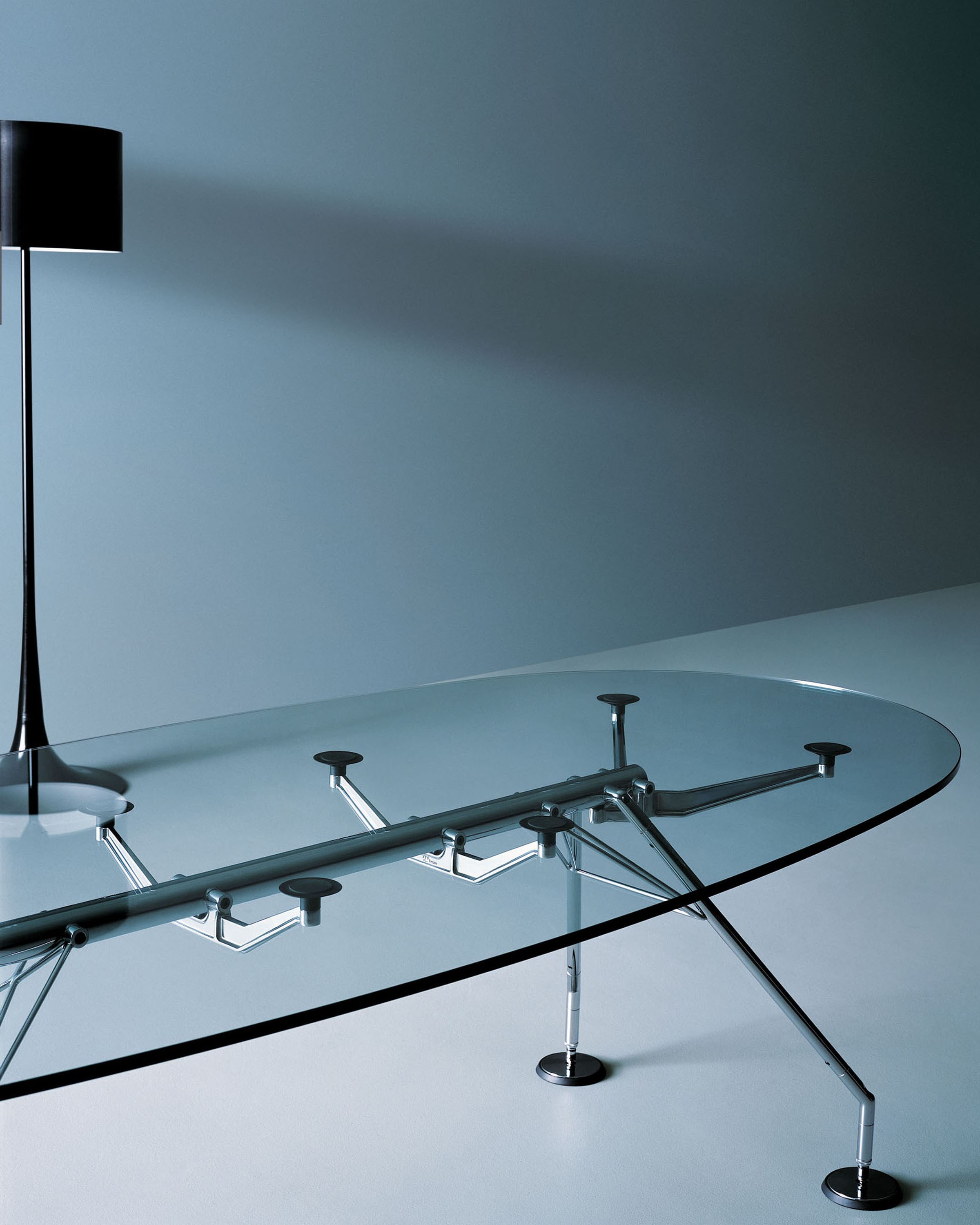
Nomos
Tecno
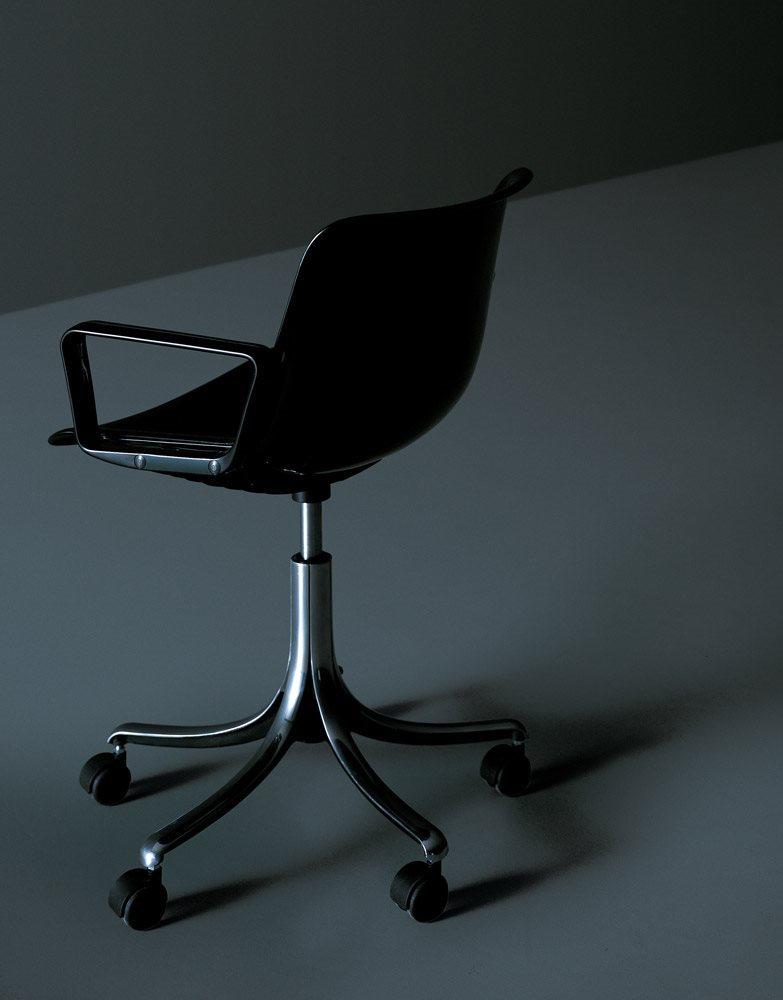
Modus
Tecno
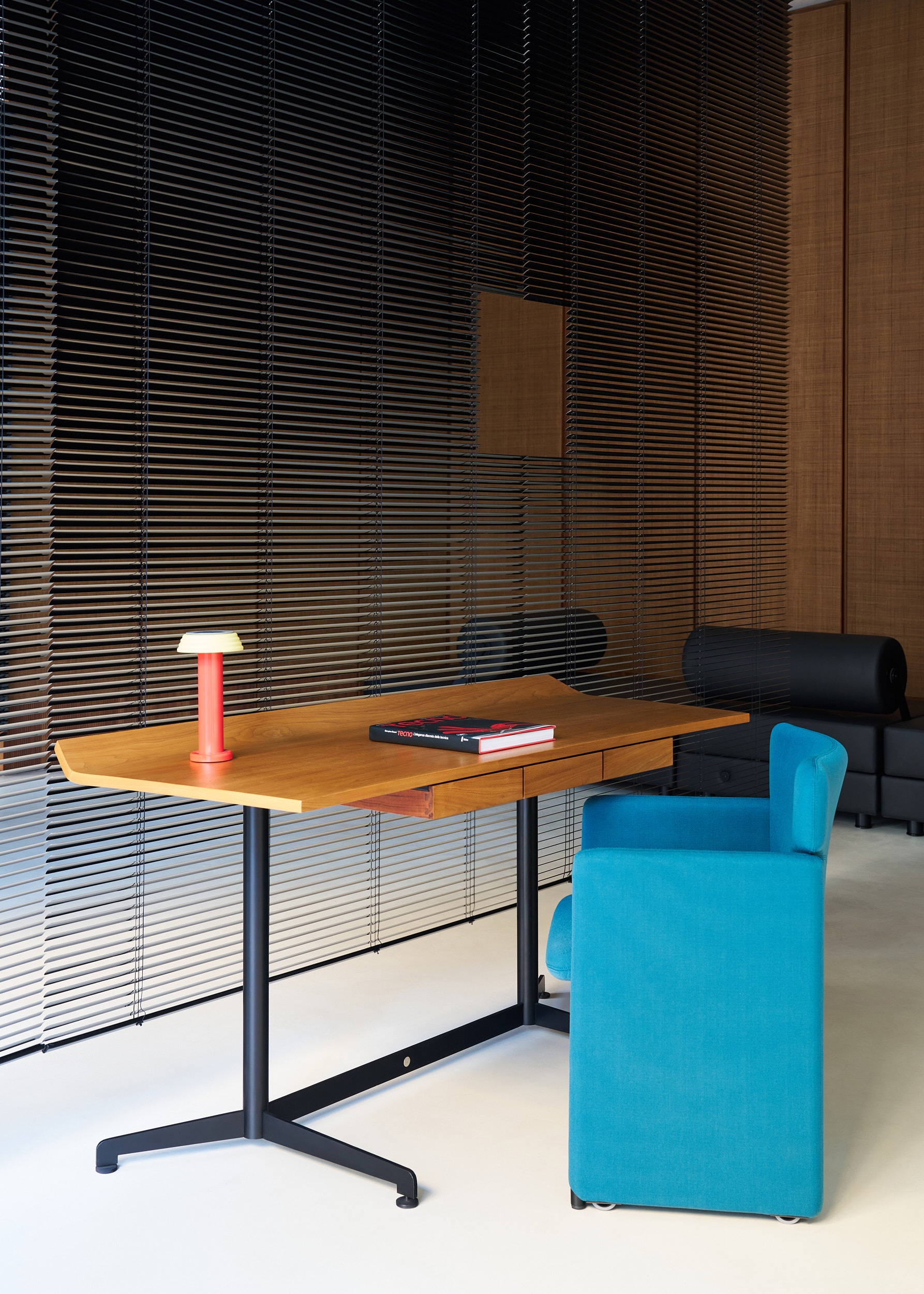
T90
Tecno
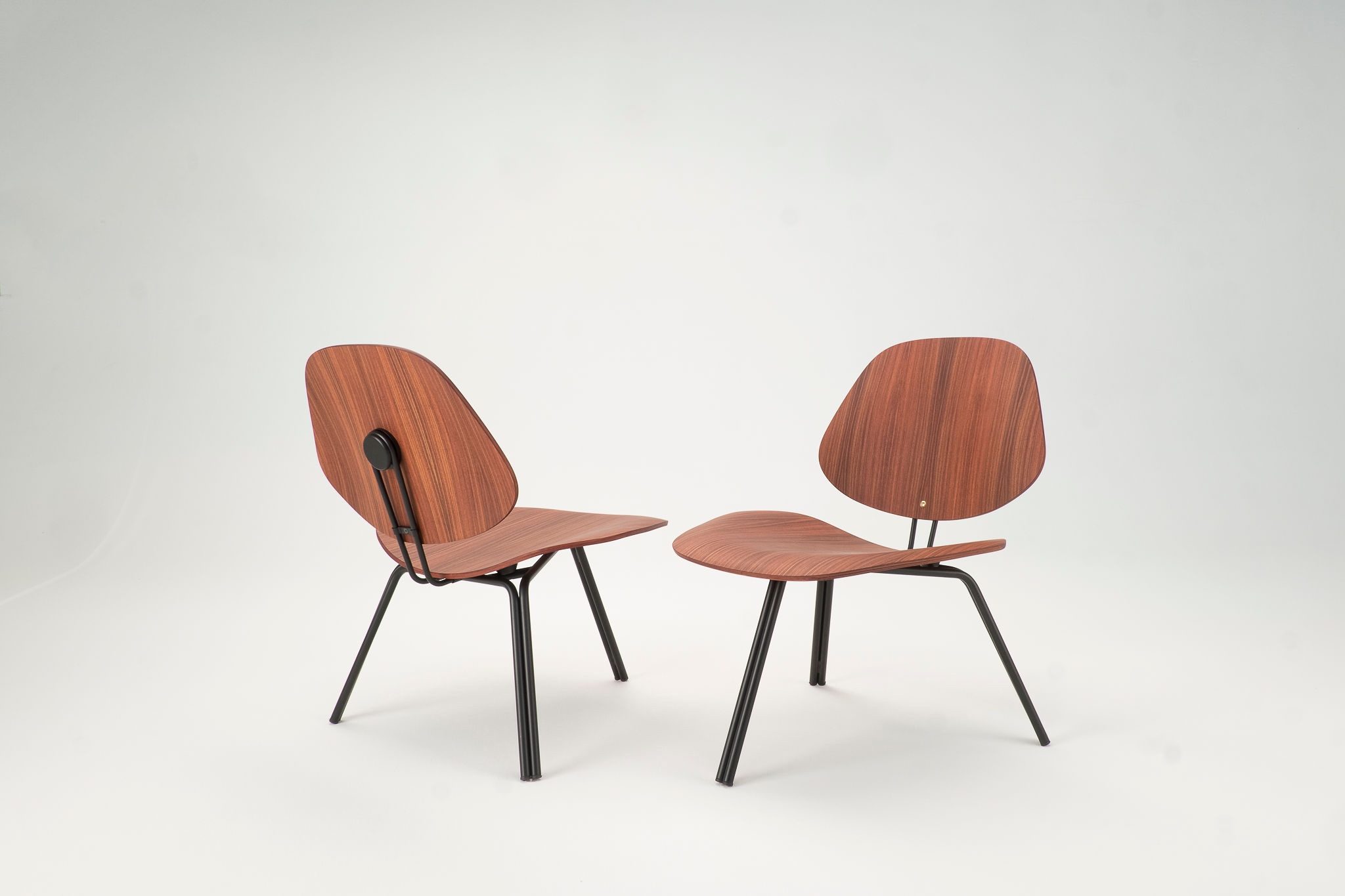
P31
Tecno
TodoModo
Tecno
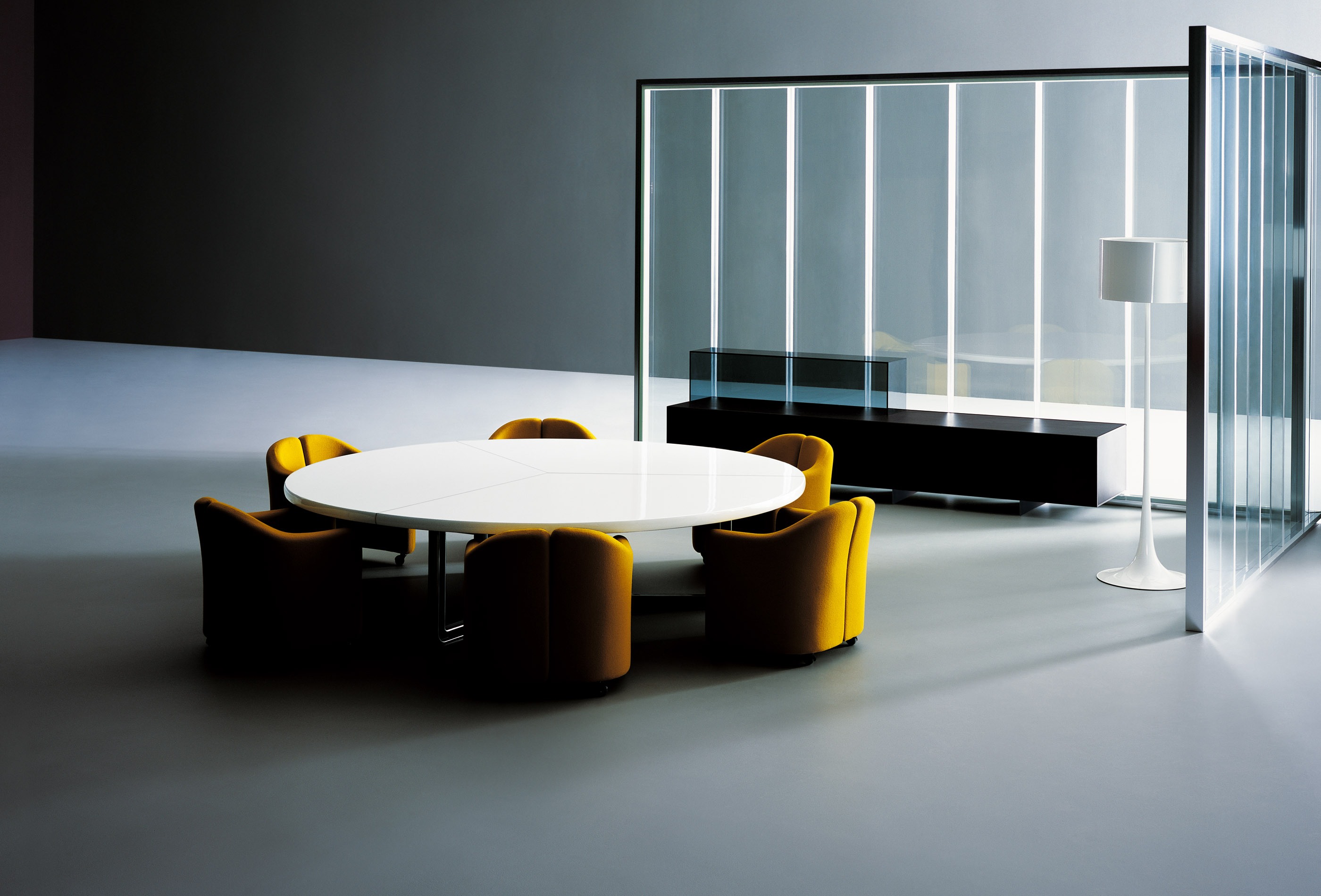
T334 T335
Tecno
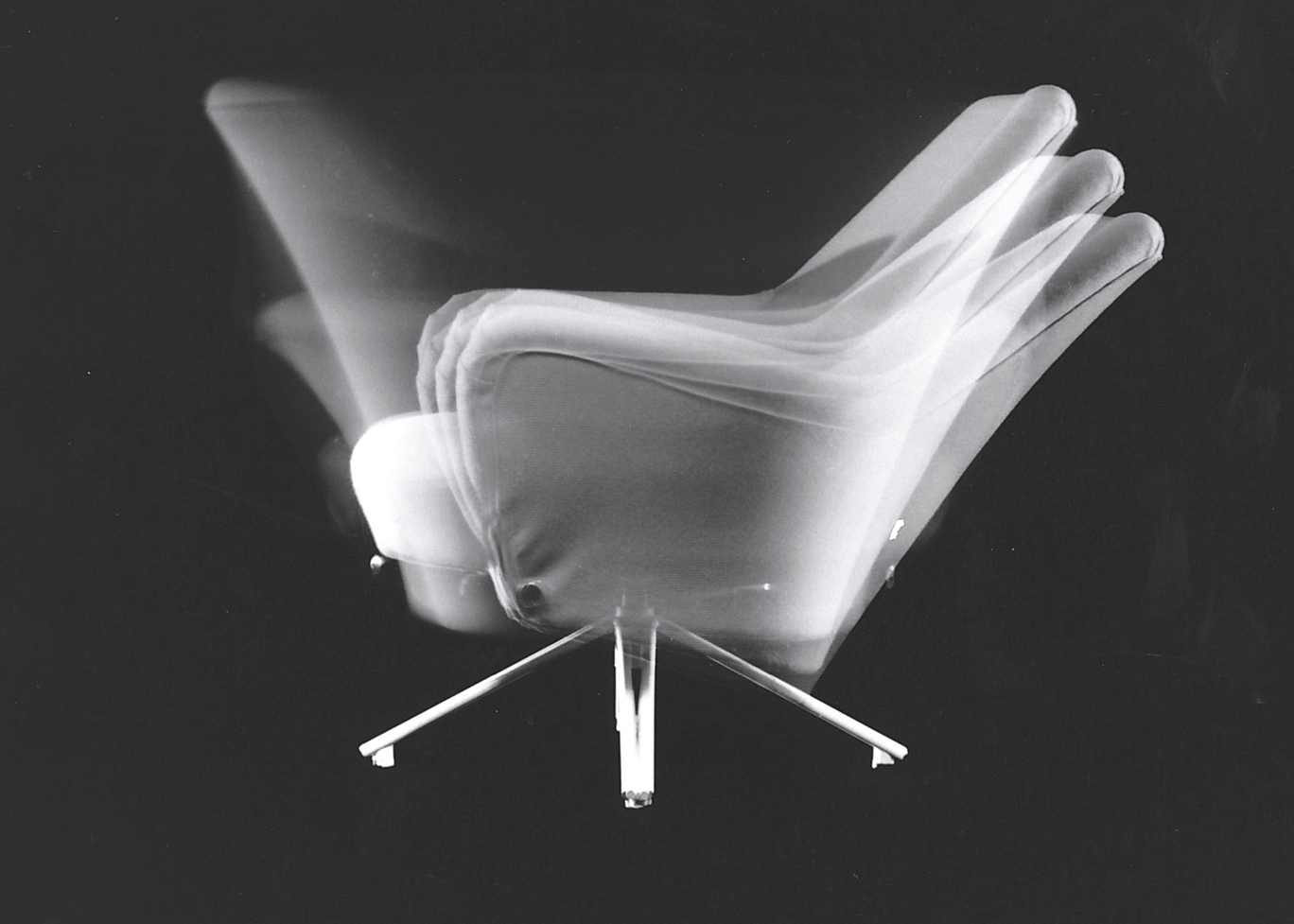
P32
Tecno
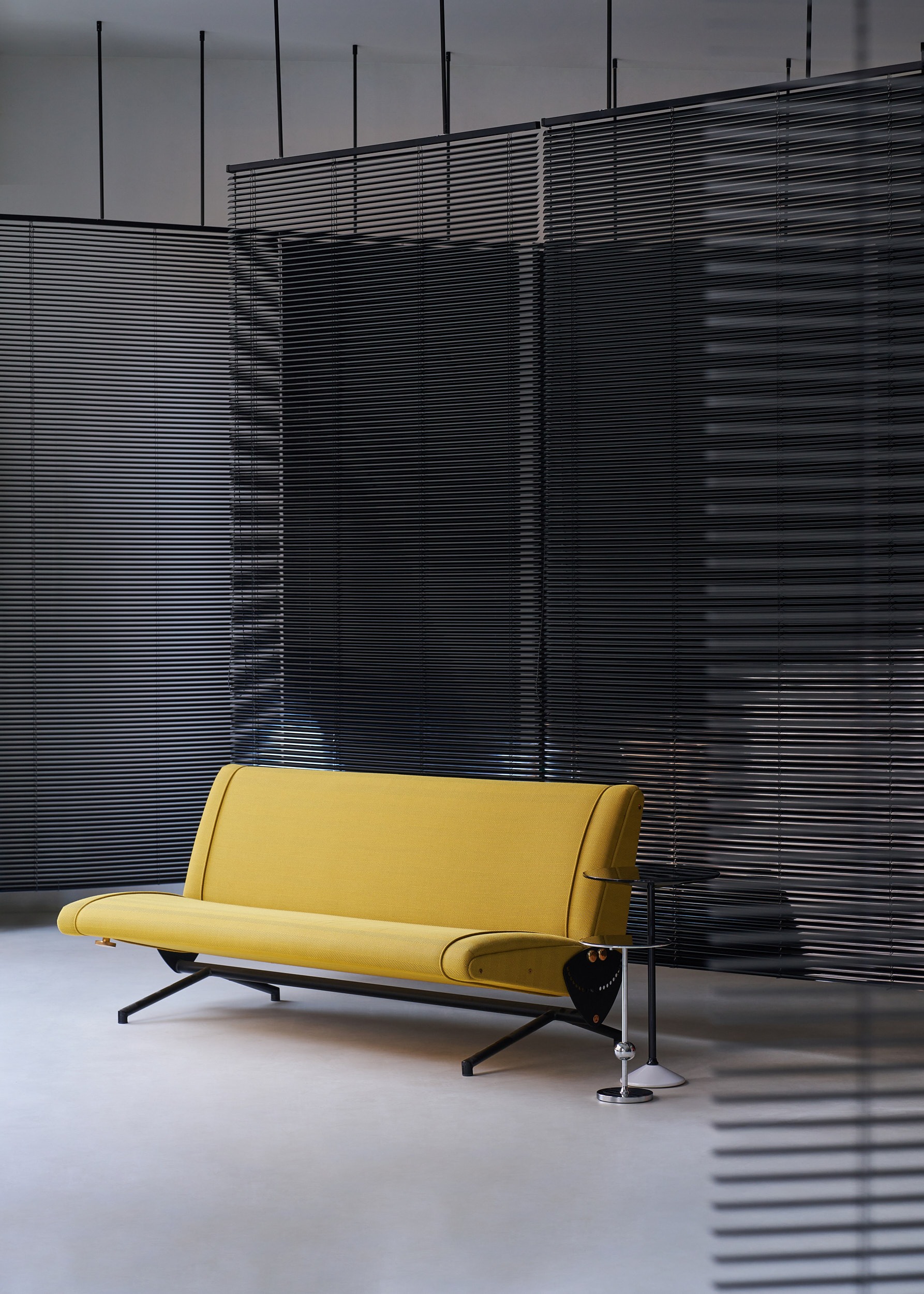
D70
Tecno
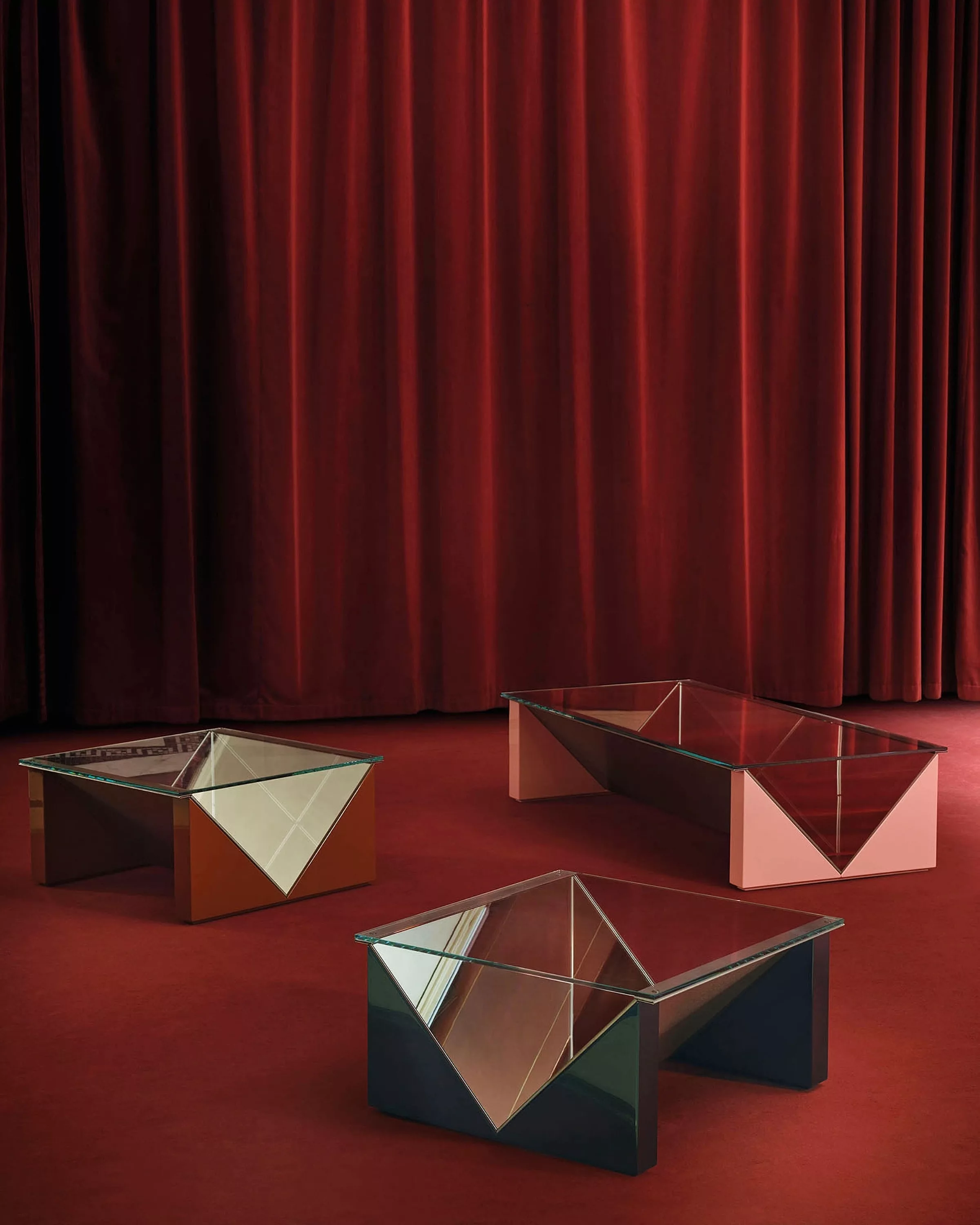
Napoleone
Acerbis
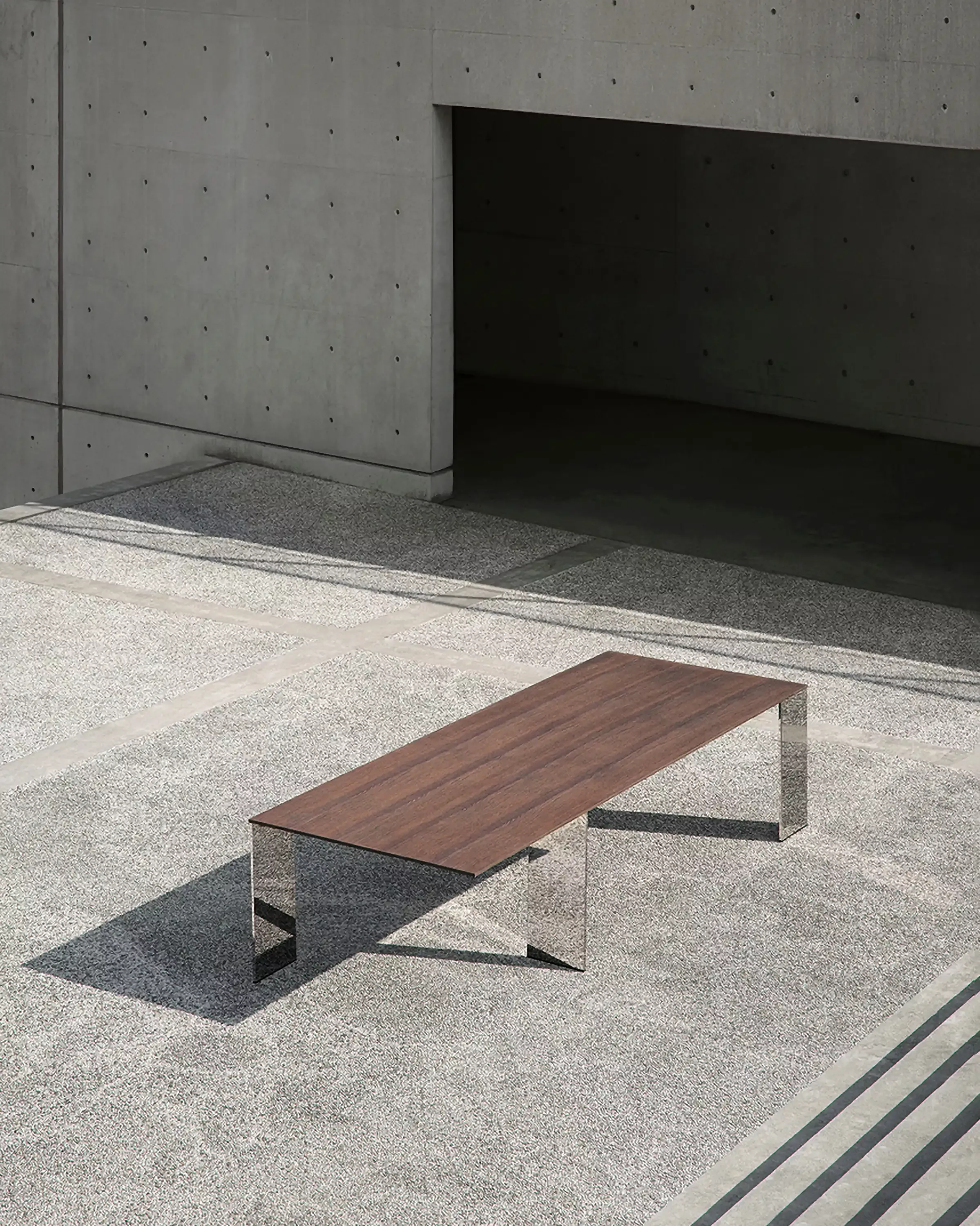
Axis
Acerbis
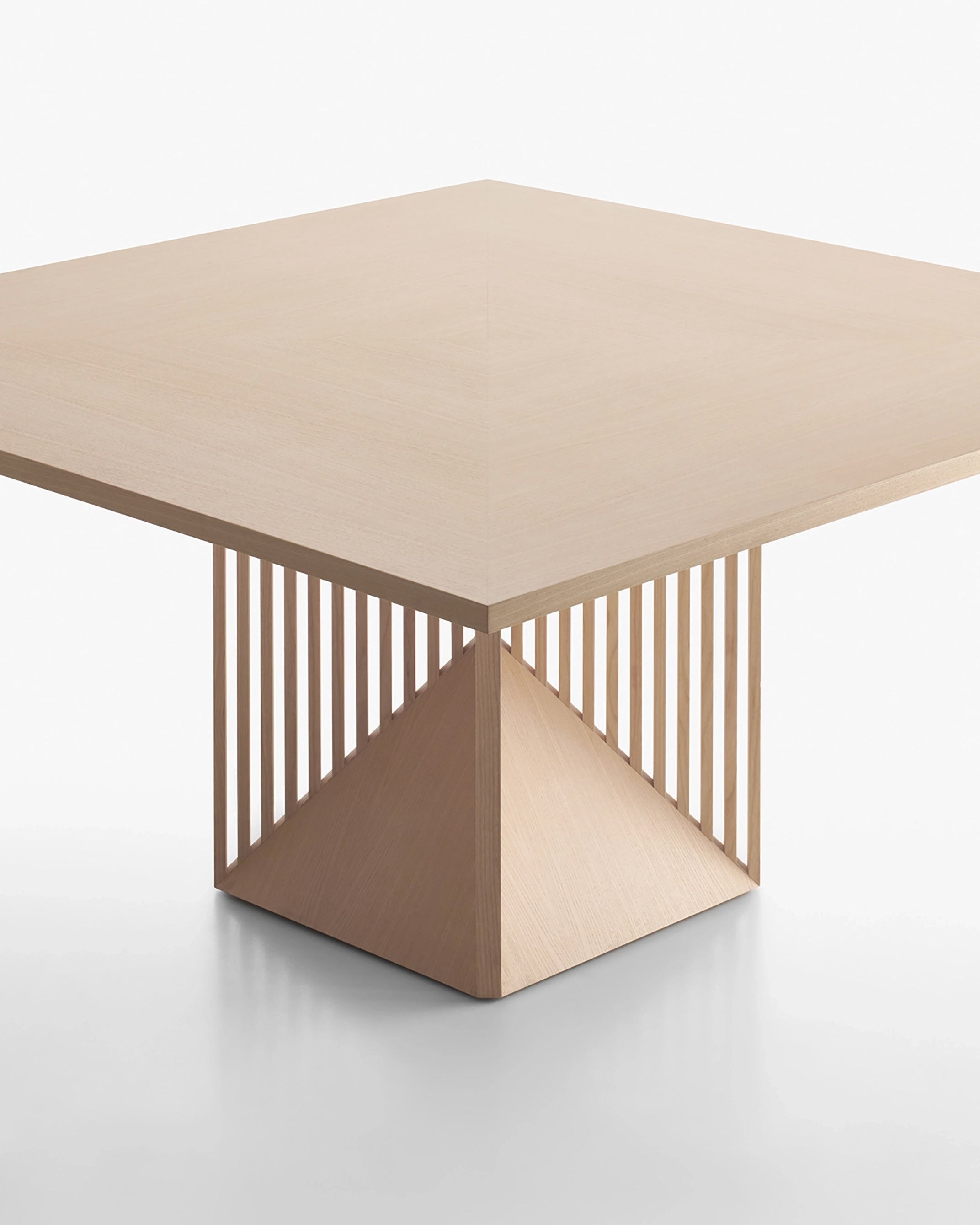
Maestro
Acerbis
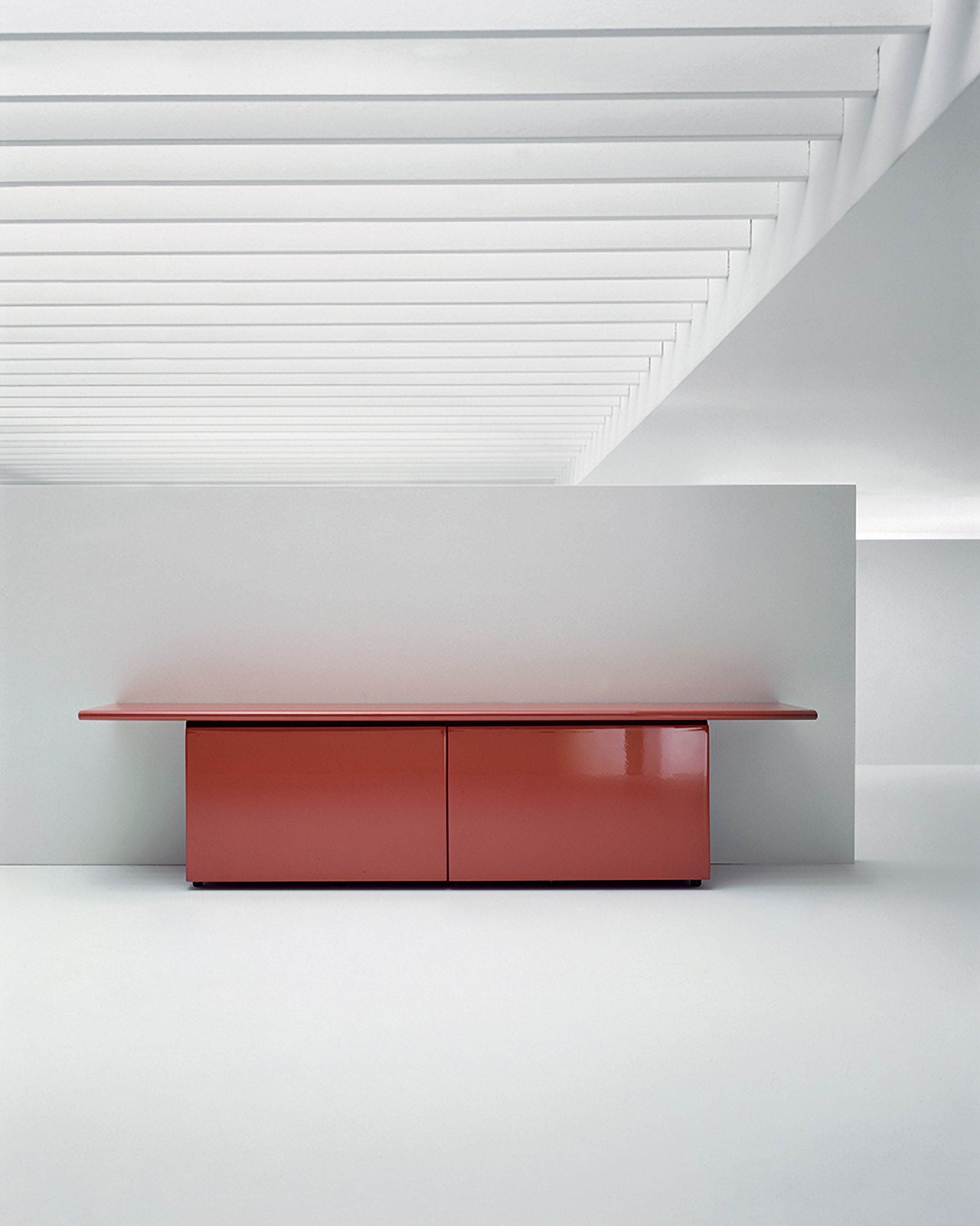
Sheraton
Acerbis
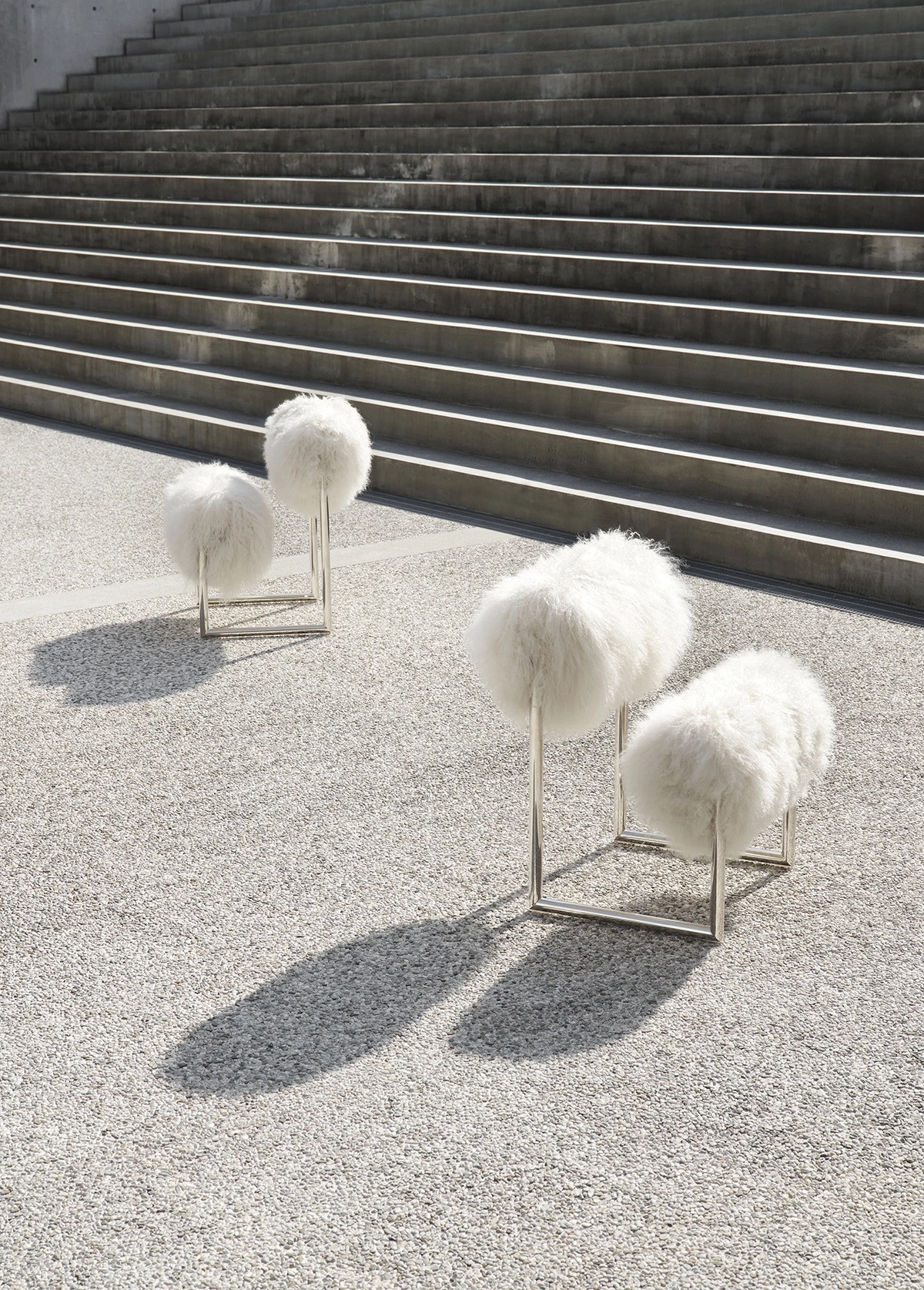
Due Piu
Acerbis
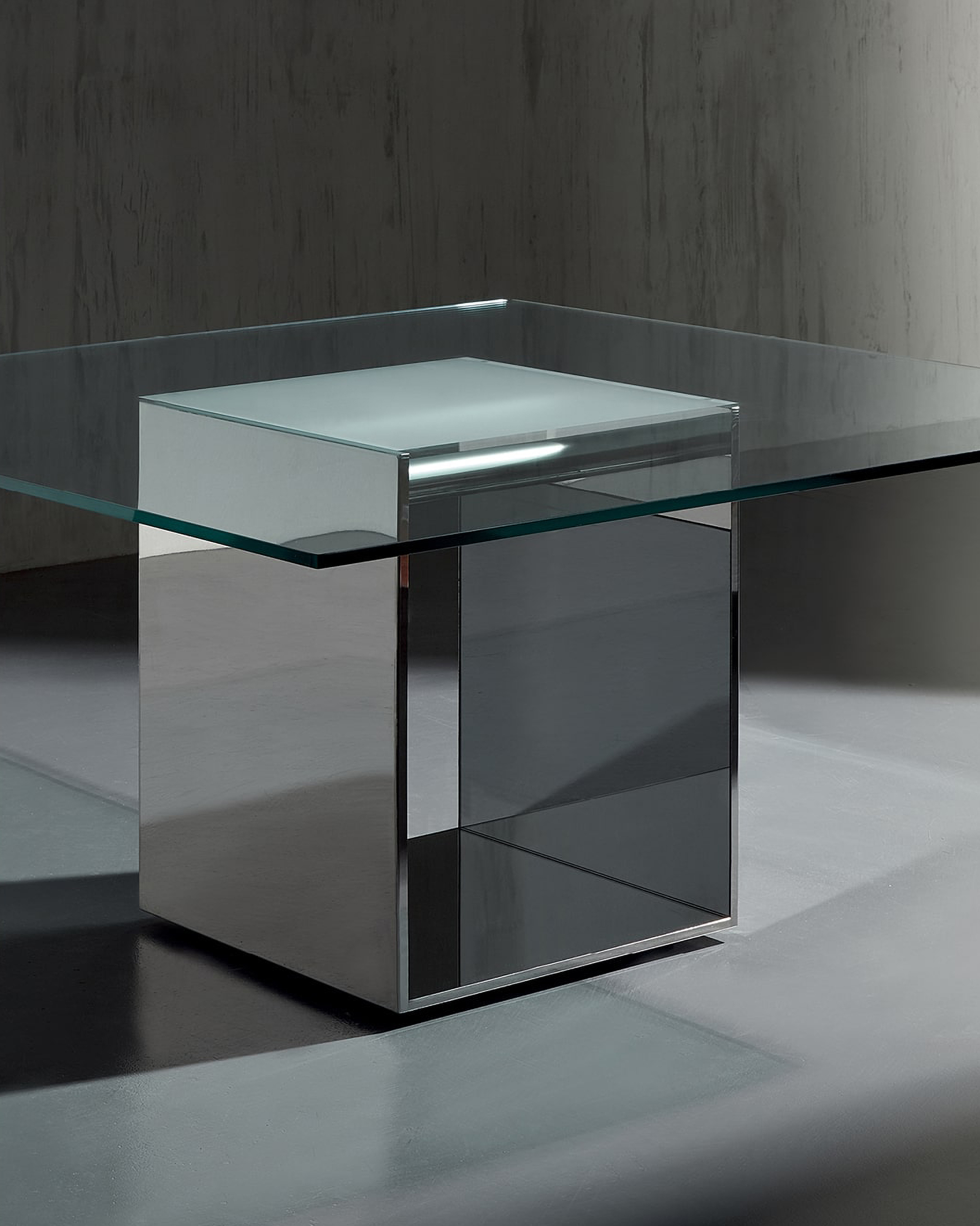
Glimm
Acerbis
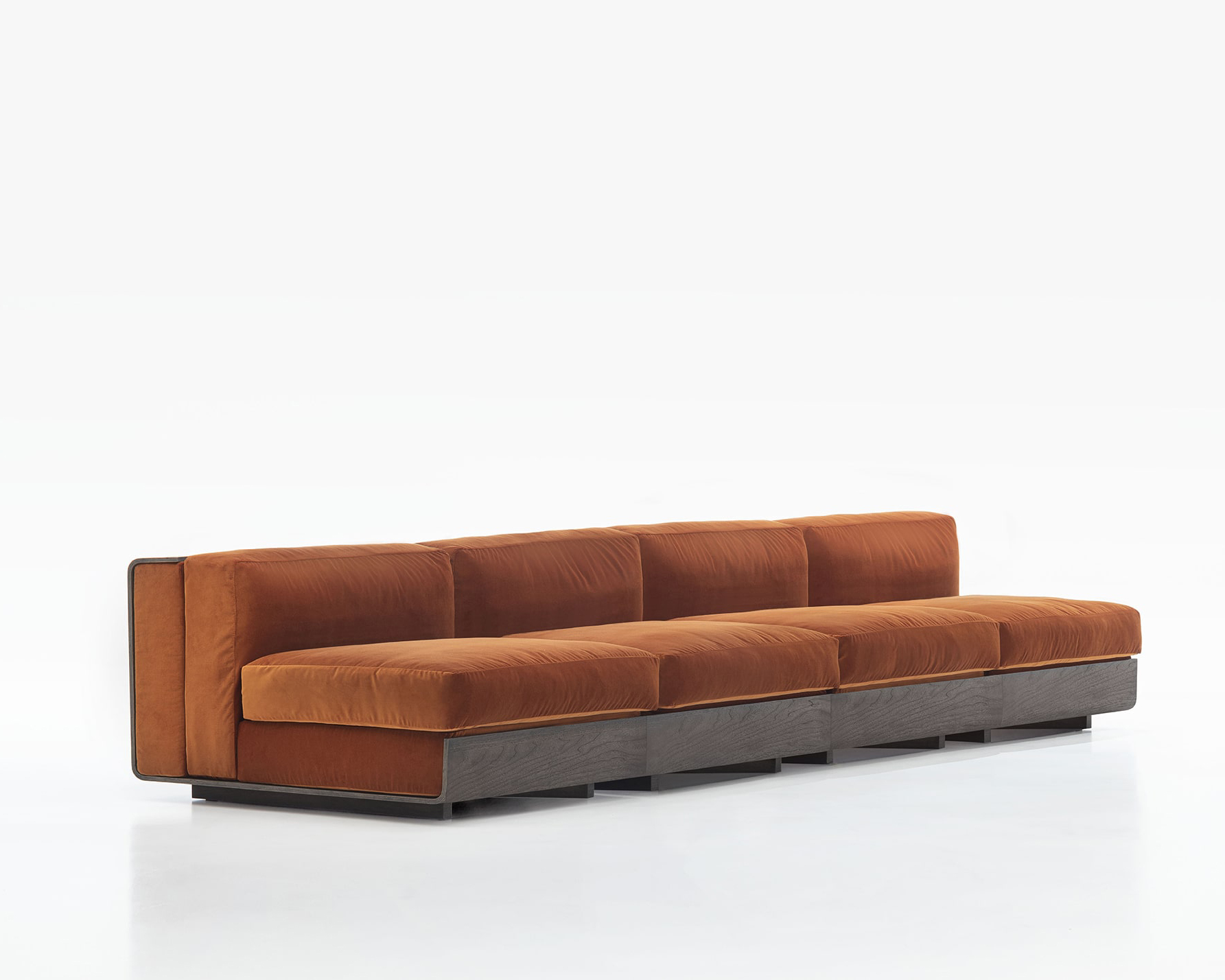
Life
Acerbis
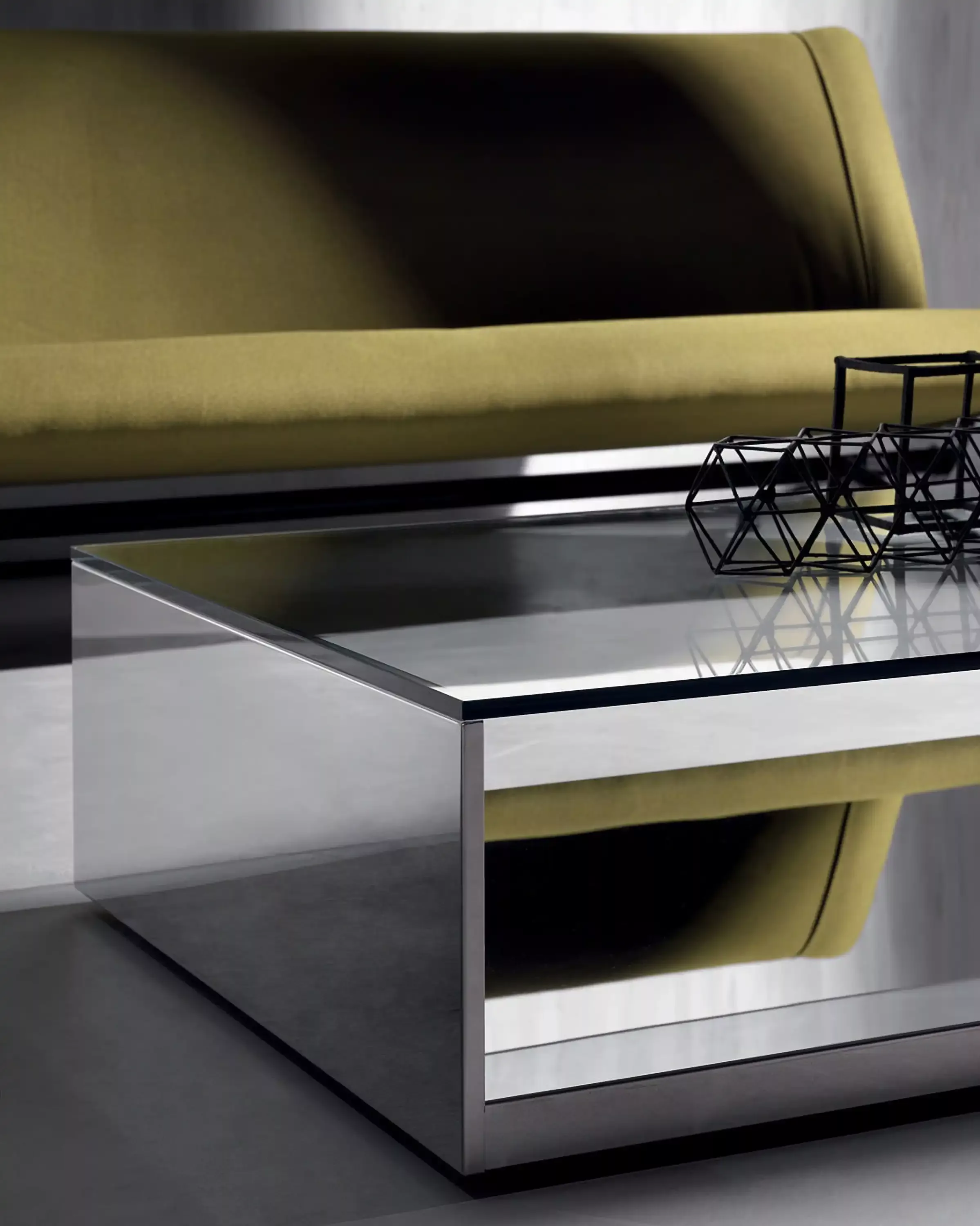
Litt
Acerbis
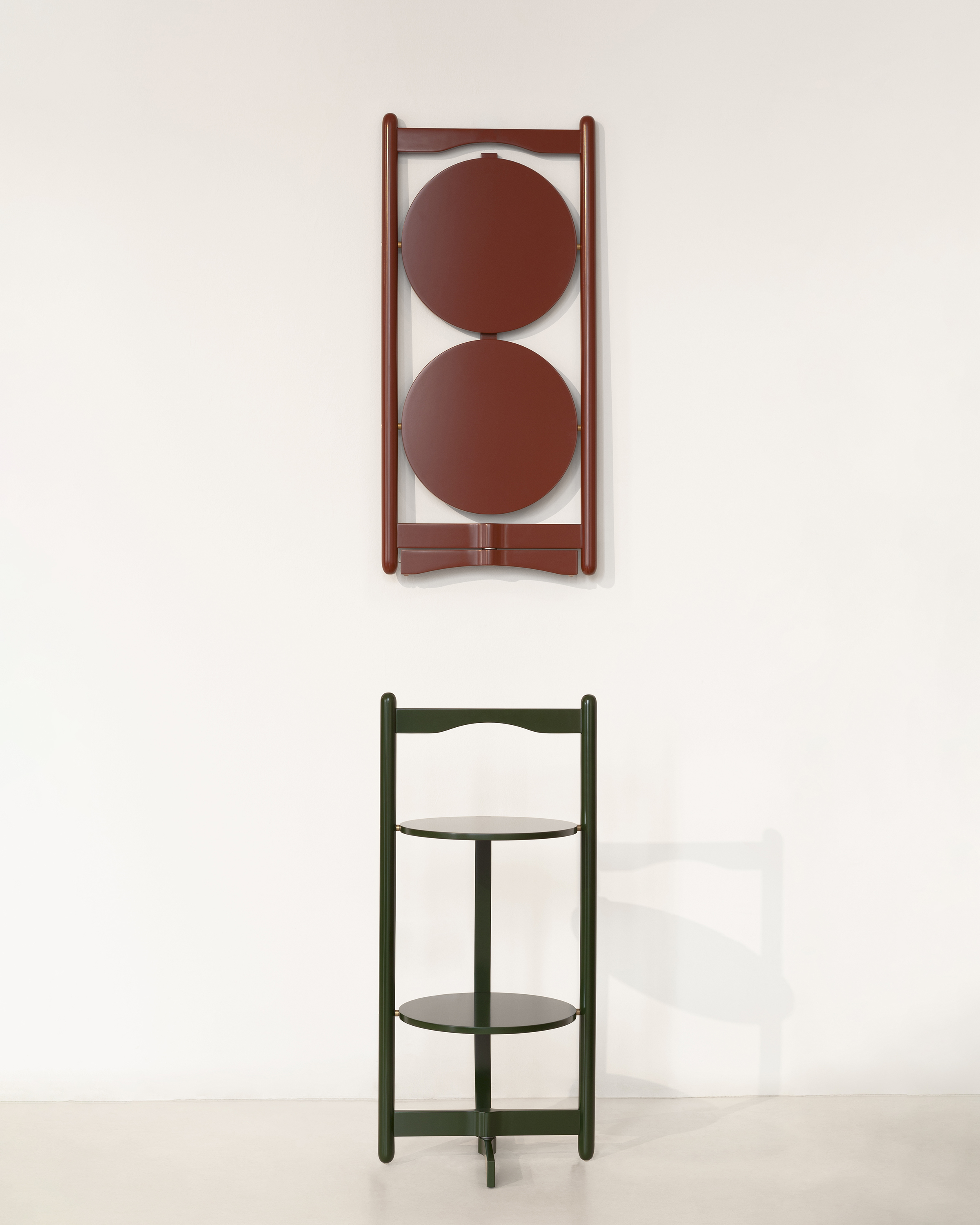
Florian
Acerbis
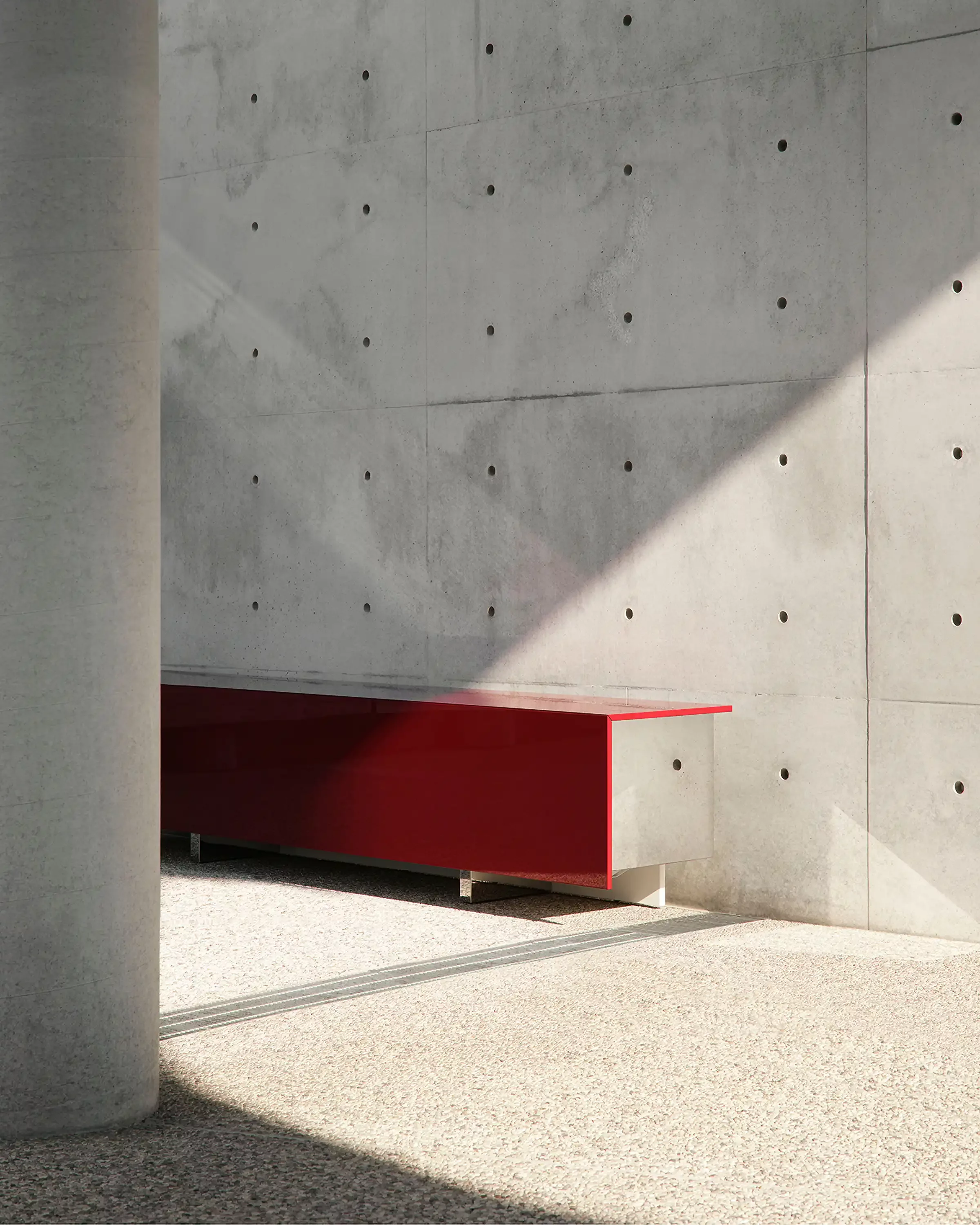
Ludwig
Acerbis
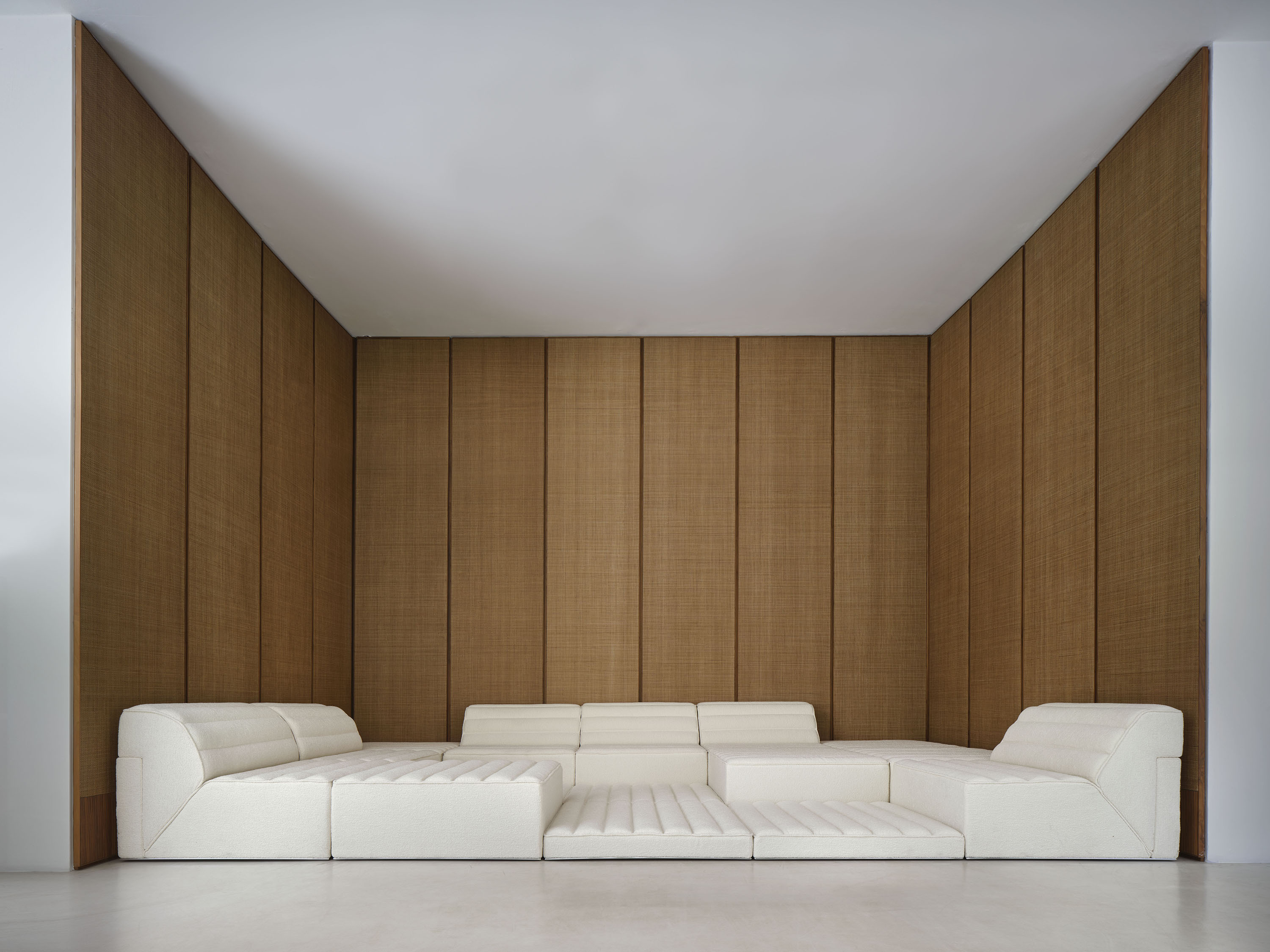
Free System
Acerbis
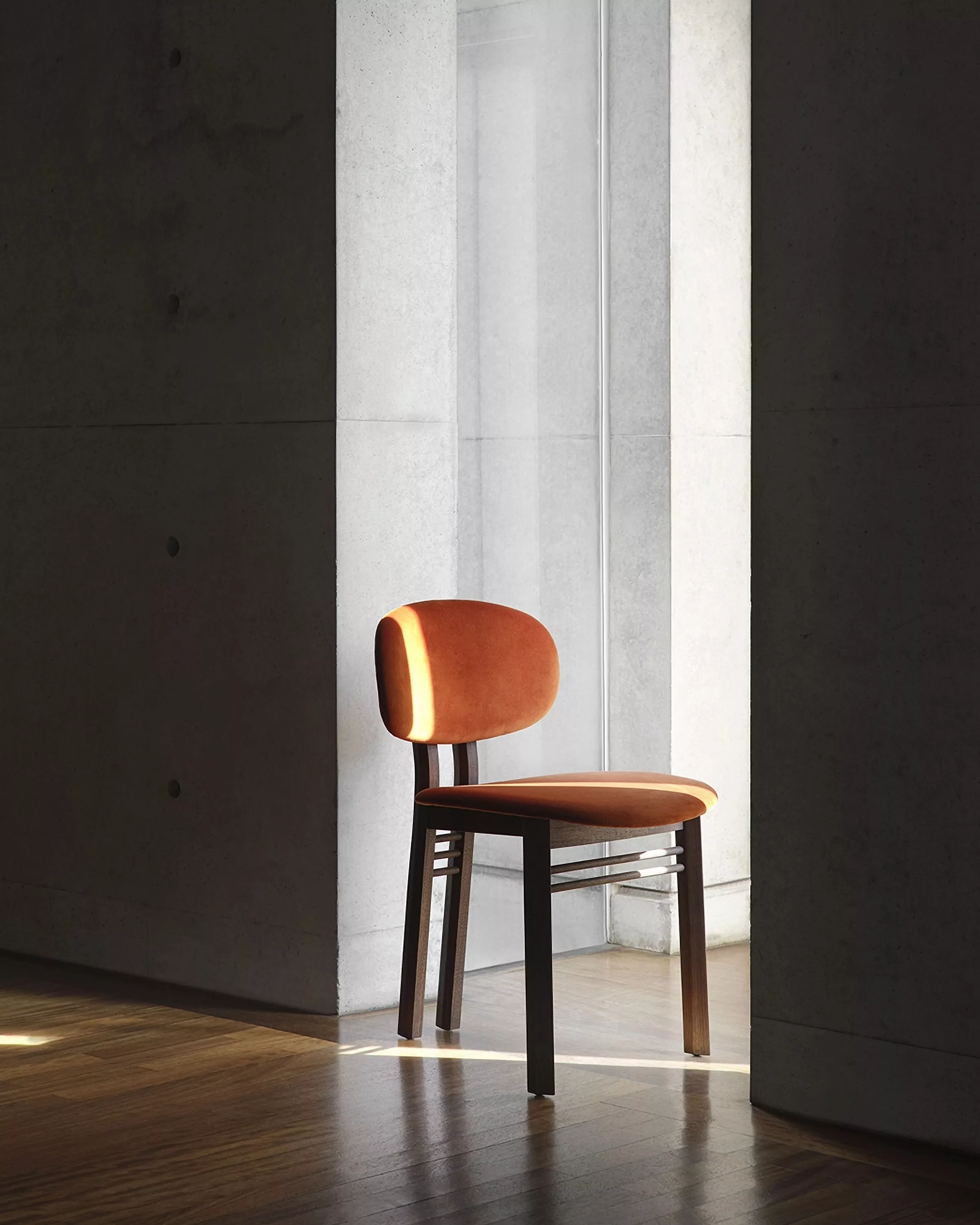
Med
Acerbis
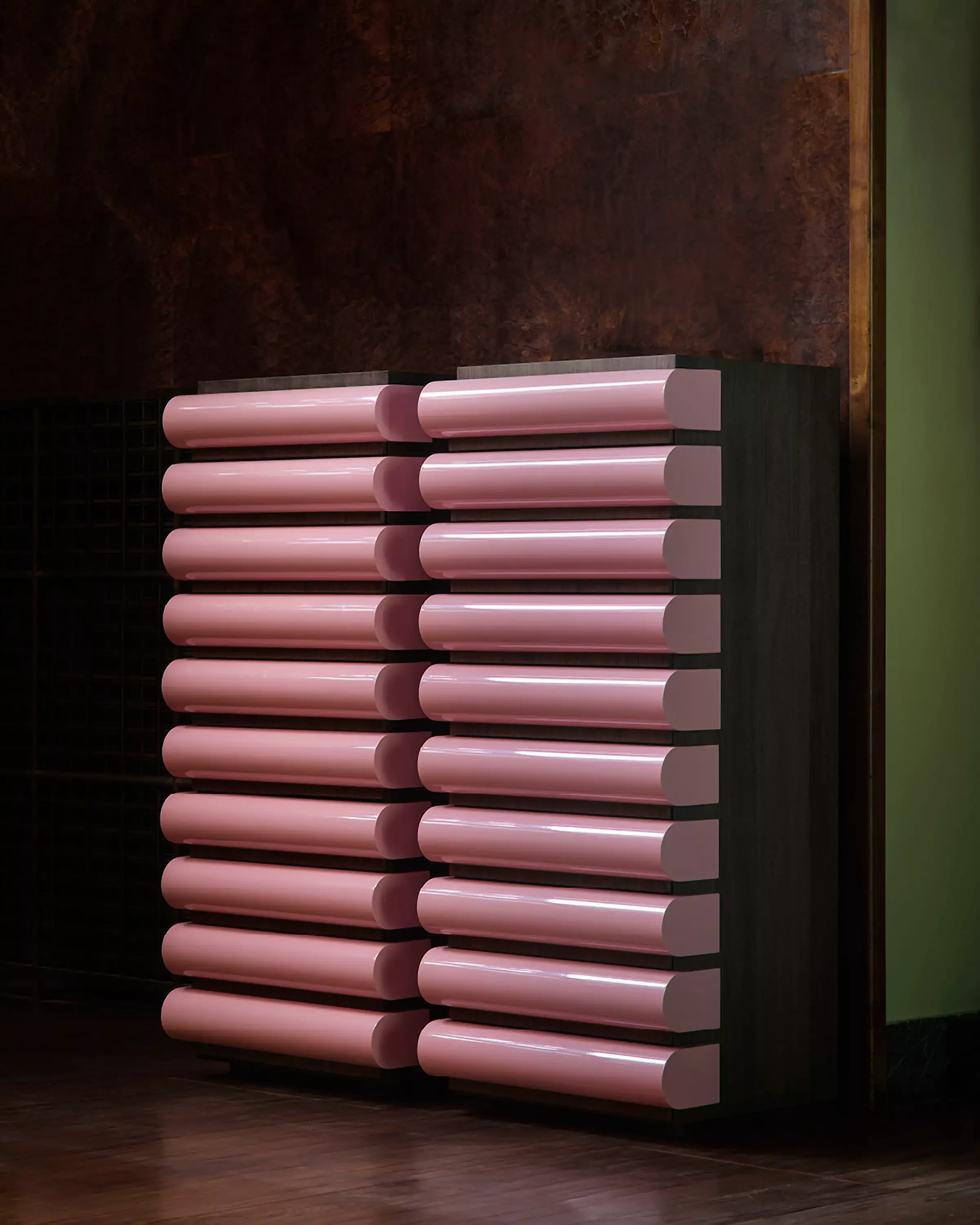
Storet
Acerbis
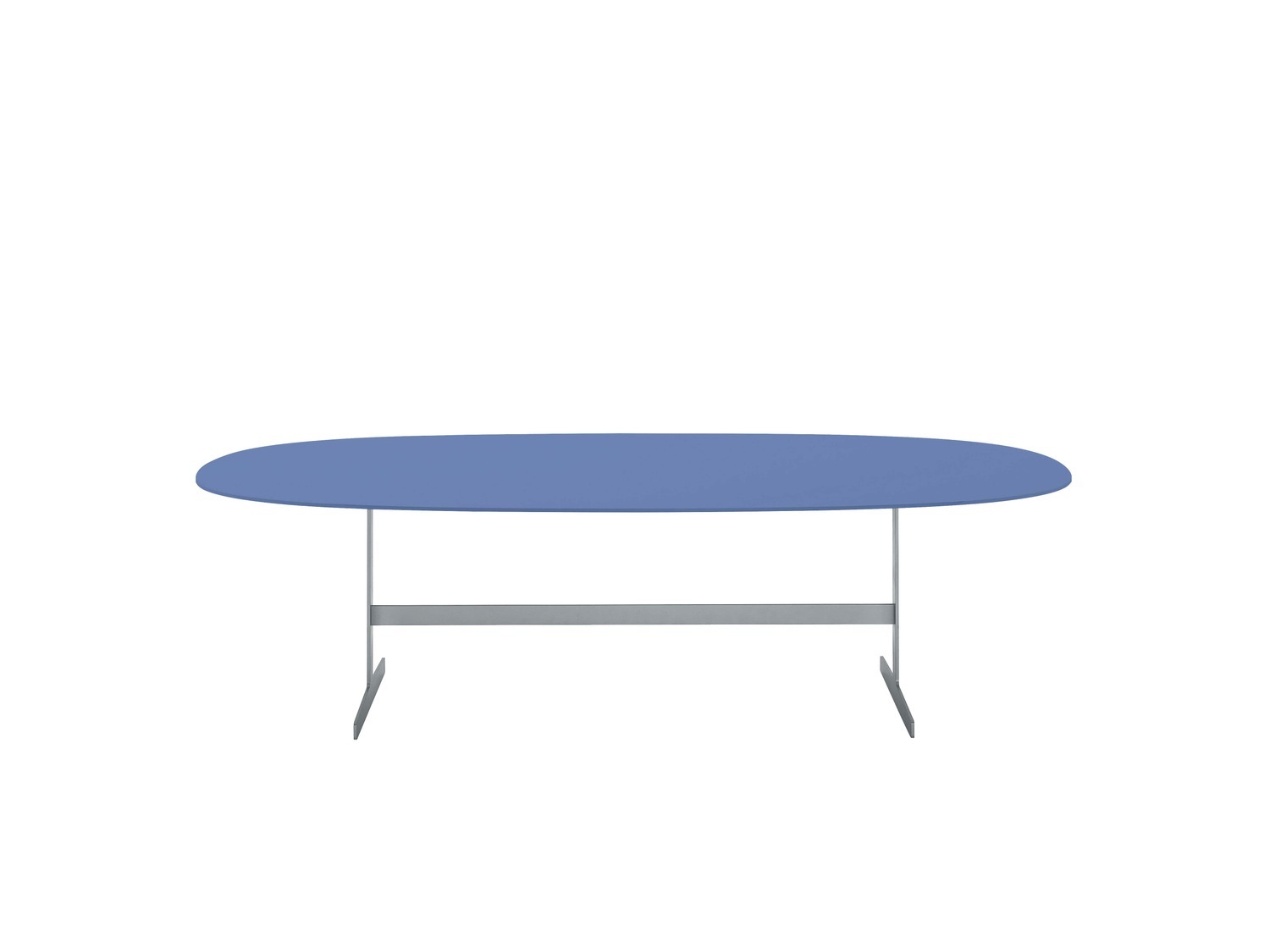
Simplon
Cappellini
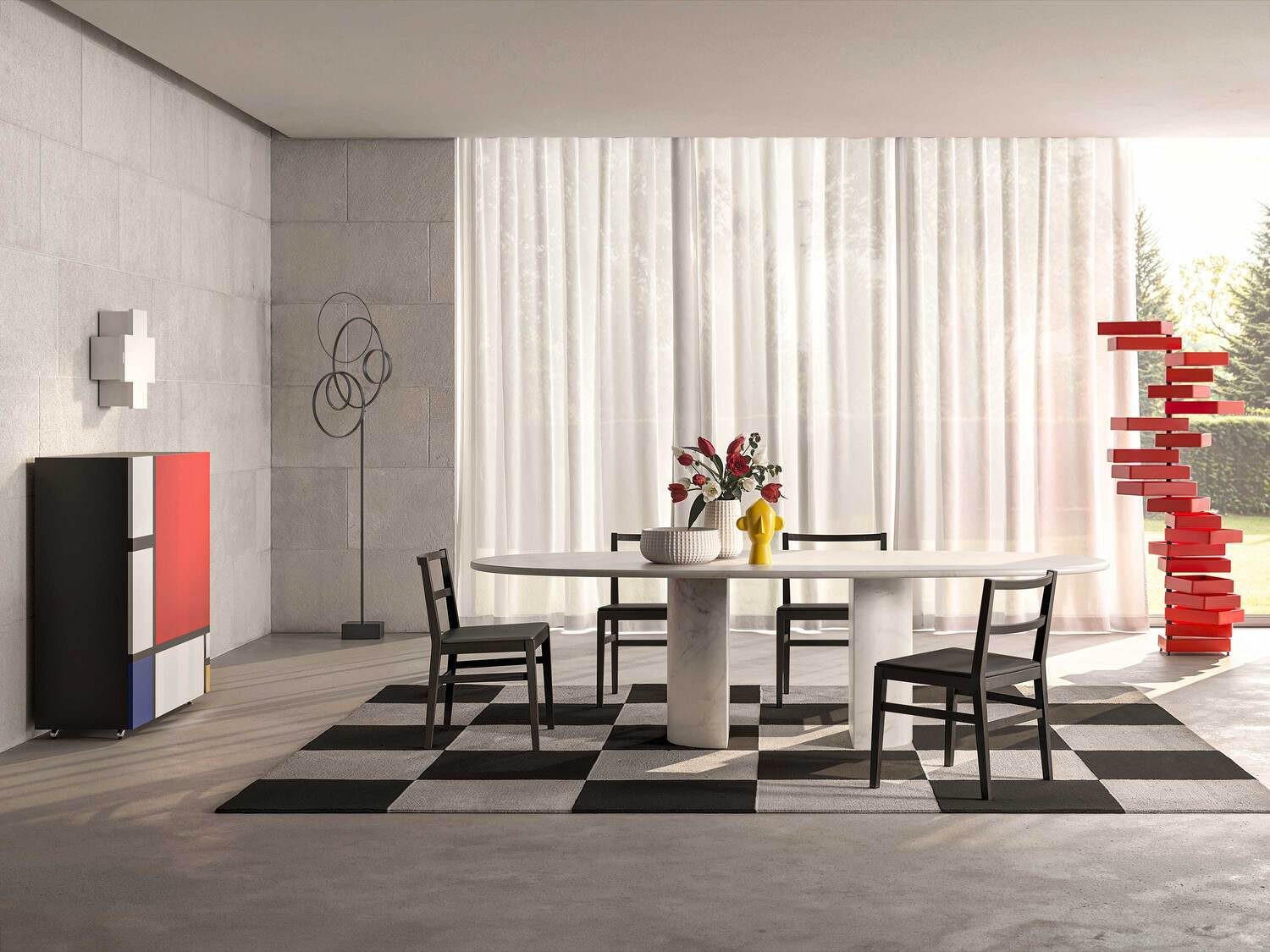
Dolmen
Cappellini
